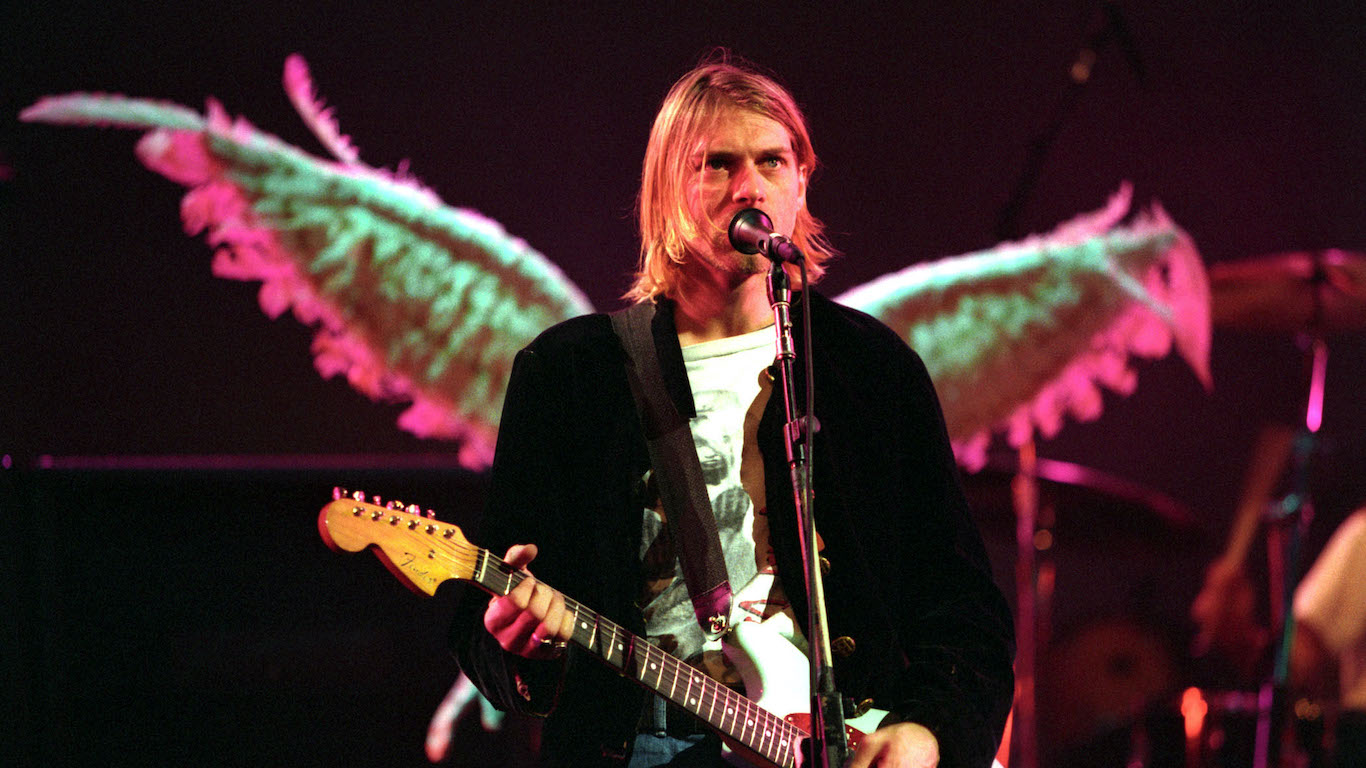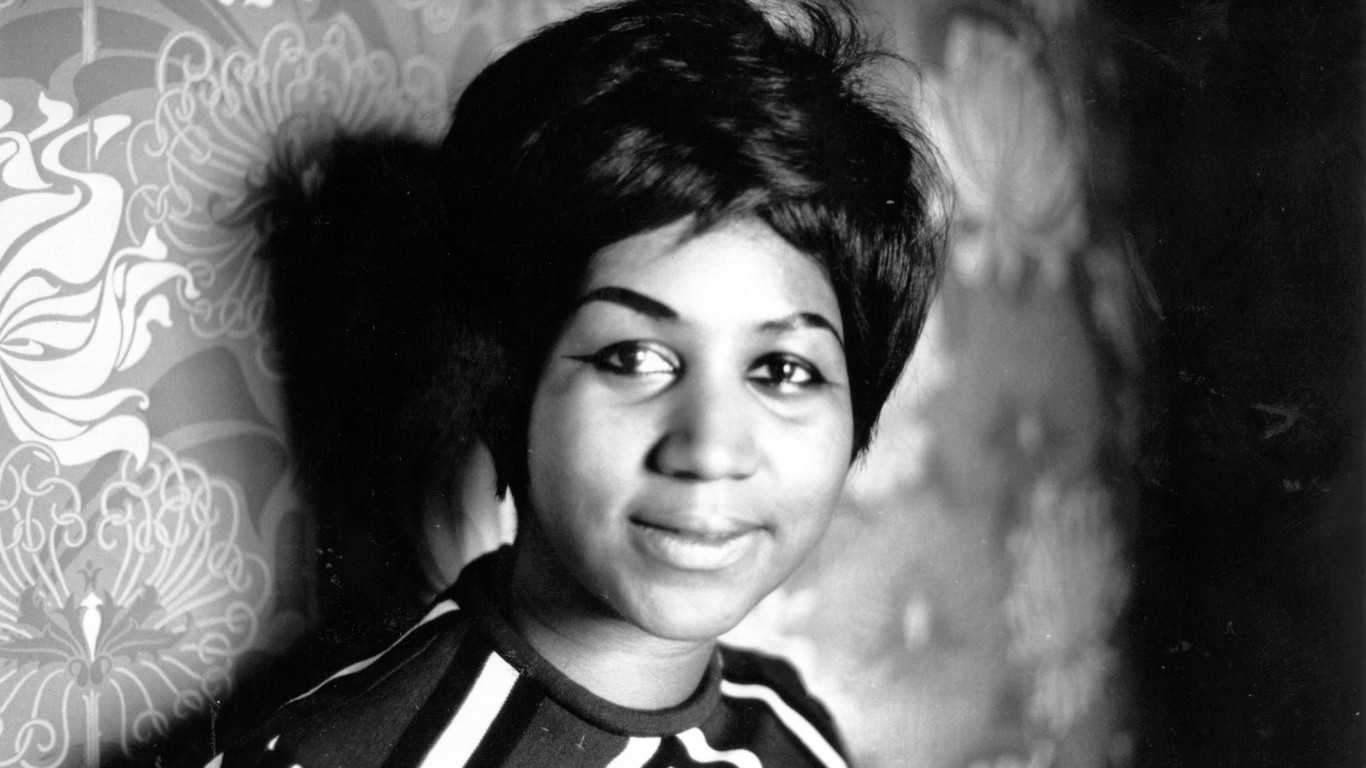
What’s a great song? It’s not necessarily something we can define, but we know a great song when we hear one. Great songs never get old. They endure throughout the years, enjoyed by listeners new and old — despite changing music tastes and trends.
The best songs become musical touchstones, embedded so deeply in our culture that it’s impossible to imagine a world without them. Not only did they prove hugely successful upon release — frequently shooting up the music charts — but they’ve also permeated society in the years since, featuring prominently on radio, in movies, and being covered by other artists.
24/7 Tempo has determined the 50 absolute best songs of all time based on numerous metrics, including Billboard performance, number of cover versions, and recognition among music fans and professional critics.
While all musical genres were considered for this list, rock and roll accounts for many of those listed. Rock music has proved tremendously popular since its inception. Furthermore, artists such as The Beatles, The Rolling Stones, and The Beach Boys helped push the boundaries of not just of rock and roll, but popular music, too. These bands are now considered to be among the best ever. These are the most popular rock bands of all time.
The 1960s seem to have been the peak of creativity in popular music. While the list features songs from every decade from the 1950s through the 2000s, more than half charted on Billboard’s Hot 100 popular music chart in the 1960s. The work of artists active during that decade is held in higher esteem than most other artists active in other decades. These are the most famous musicians born the year you were born.
Regardless of release date, these are the songs that have both commercial as well as critical appeal, captivating music fans, reviewers, and performers.
Click here to see the 50 absolute best songs in history.
To determine the 50 best songs in history, 24/7 Tempo generated an index based on rankings on the Billboard Hot 100 chart and performance on Ranker.com’s user-generated list of the best songs. The number of times the song has been covered by other artists, as well as whether or not it was included — and, if so, its rank — on “Rolling Stone’s 500 Greatest Songs of All Time” list were also considered.
To be considered for inclusion, a song must have both charted on the Billboard Hot 100 and be included on Ranker.com’s list of the best songs of all time. How well a song performed on the Billboard Hot 100 was determined by awarding points based on the number of weeks it charted and its rank for each week. Data on the estimated number of times a song has been covered was provided by SecondHandSongs. Performers were not permitted to have more than three songs included on the list so as to increase variety. Songs performed under multiple names were not counted for the same tally, however. For instance “The Beatles” and “John Lennon” were counted as separate artists. Finally, editorial discretion was used to include songs that, in rare cases, performed exceptionally well in certain metrics but not others.

50. Walk on By
> Artist: Dionne Warwick
> Billboard Hot 100 entry date: April 25, 1964
> Total weeks on Billboard Hot 100: 13
> Listen here
“Walk on By” is among the best songs written by legendary team Burt Bacharach and Hal David. Between 1961 and 1981, the songwriters either penned or produced 38 charting hits for singer Dionne Warwick. However it’s “Walk on By” — which has been covered dozens of times by artists including Aretha Franklin, Isaac Hayes, and the Beach Boys — that endures as a beloved pop standard.
[in-text-ad]
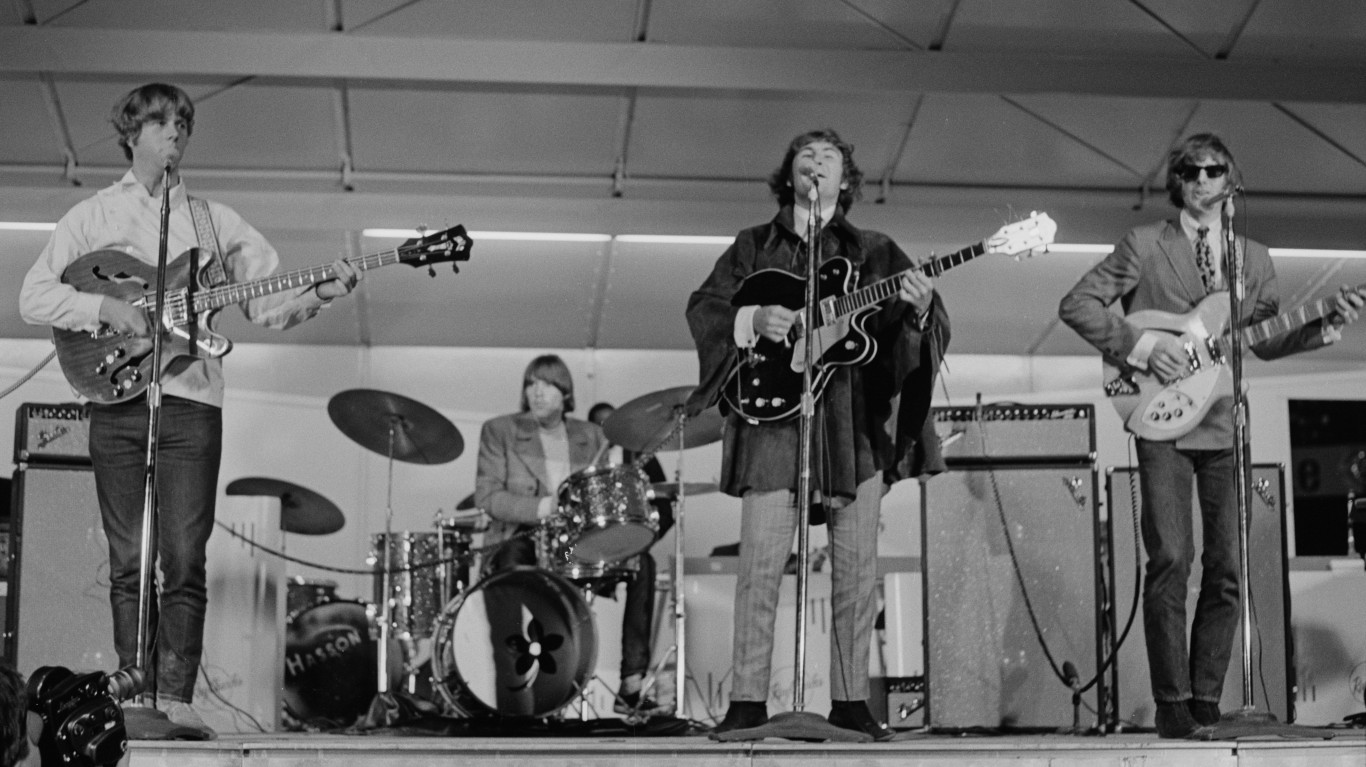
49. Turn! Turn! Turn! (To Everything There Is A Season)
> Artist: The Byrds
> Billboard Hot 100 entry date: October 23, 1965
> Total weeks on Billboard Hot 100: 14
> Listen here
The jangly guitar strumming California folk-rockers turned eight verses from the Book of Ecclesiastes into one of the rock era’s most memorable songs. “Turn! Turn! Turn! (To Everything There Is A Season),” originally recorded by The Limeliters and written by Pete Seeger, was the Byrds’ second No.1 (after “Mr. Tambourine Man”) and reached the Billboard Hot 100 summit in December of 1965. The song is featured in the motion picture “Forrest Gump.”
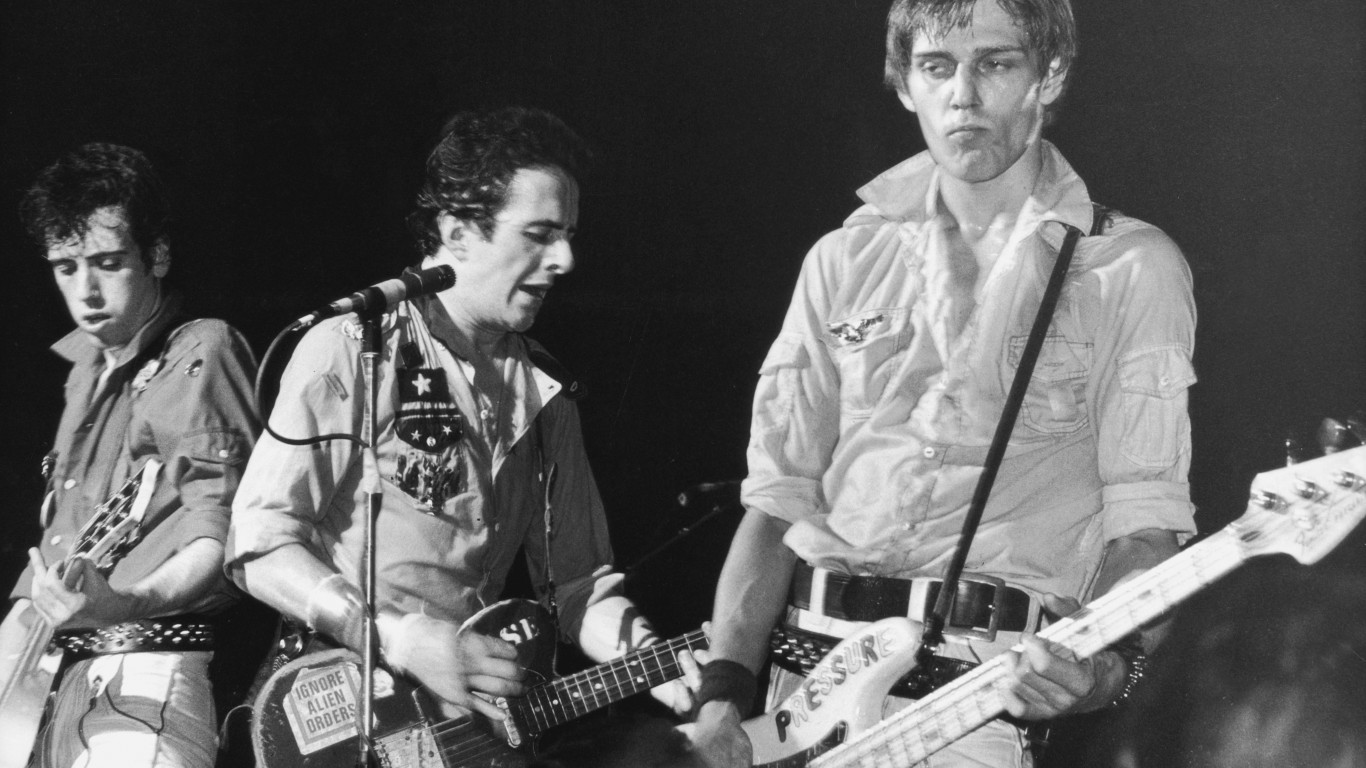
48. Rock The Casbah
> Artist: The Clash
> Billboard Hot 100 entry date: October 2, 1982
> Total weeks on Billboard Hot 100: 24
> Listen here
The Clash, the iconoclastic London punk rockers who were once called “the only band that mattered” sneered at commercial success, though their groundbreaking albums were major sellers. Their biggest single was “Rock the Casbah,” a risible poke at Islam that rose to No. 8 on the Billboard Hot 100 in January of 1983. The song was briefly removed from radio airplay after the 9/11 terrorist attacks.
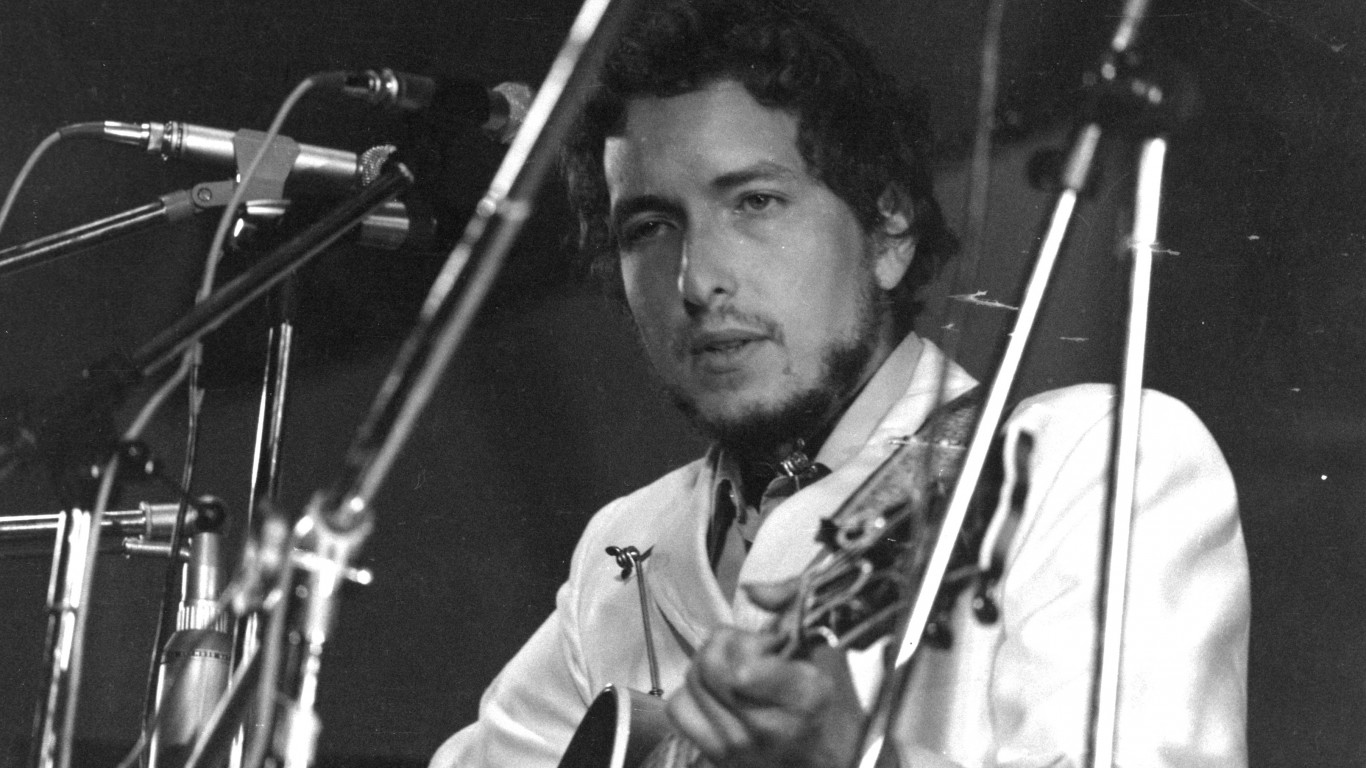
47. Like A Rolling Stone
> Artist: Bob Dylan
> Billboard Hot 100 entry date: July 24, 1965
> Total weeks on Billboard Hot 100: 12
> Listen here
Few songs say the Sixties more than “Like A Rolling Stone,” written and sung by the Nobel Prize-winning Bob Dylan. The song, that skewers society for its hypocrisies, was the biggest pop hit for the folk-rock balladeer, climbing to No. 2 on the Billboard Hot 100 in September 1965.
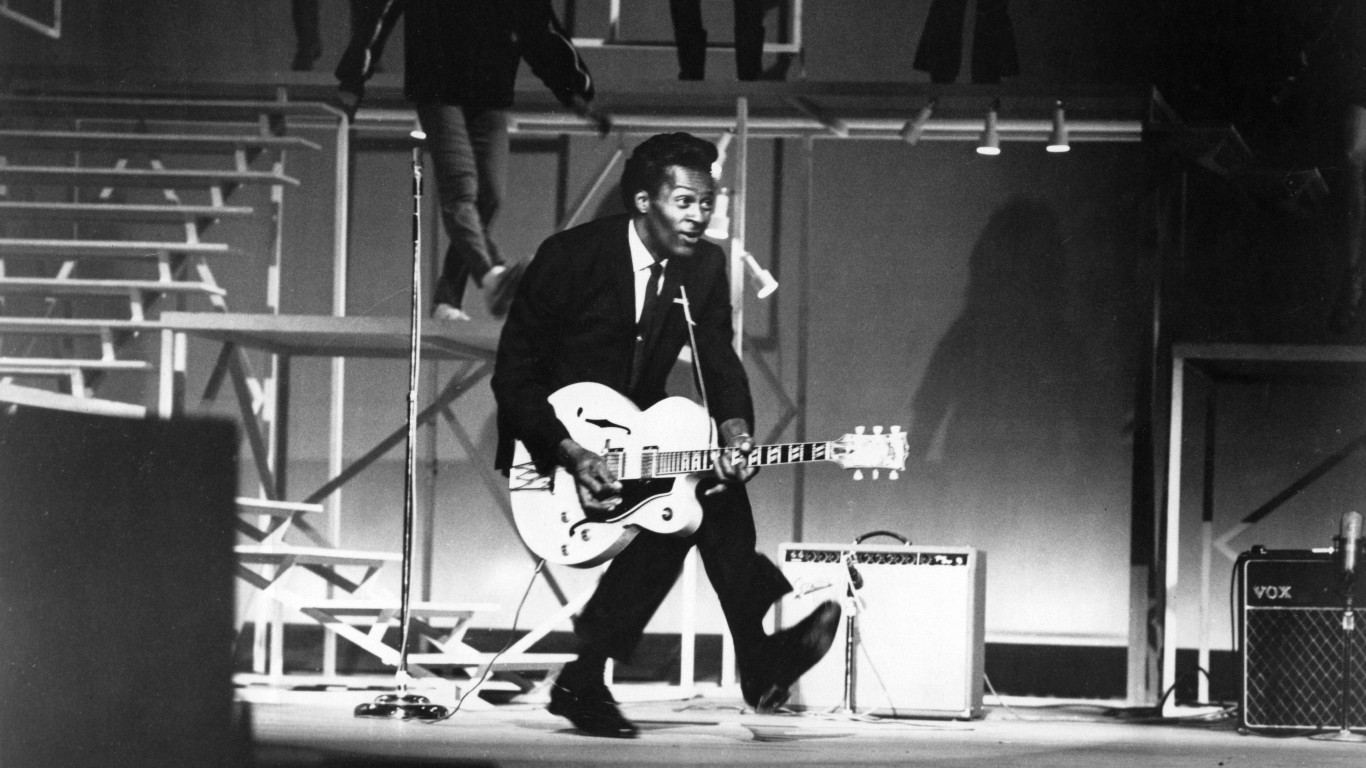
46. Johnny B. Goode
> Artist: Chuck Berry
> Billboard Hot 100 entry date: Aug. 4, 1958
> Total weeks on Billboard Hot 100: 1
> Listen here
Duck-walking rock pioneer Chuck Berry got 1950s dances hopping with his signature song. “Johnny B. Goode” was famously covered by Michael J. Fox’s time-traveling character in “Back to the Future.” In 1977, NASA sent a copy of “Johnny B. Goode” on the Voyager space probe as part of a package meant to represent American culture.

45. Come as You Are
> Artist: Nirvana
> Billboard Hot 100 entry date: March 21, 1992
> Total weeks on Billboard Hot 100: 18
> Listen here
“Come as You Are” was the second most successful single for the grunge rockers, topping out at No. 32 on the Billboard Hot 100 in May of 1992. The song’s lyrics may be intentionally confusing, but it was the repeating line, “I don’t have a gun,” that would take on a disturbing meaning when Nirvana’s frontman Kurt Cobain committed suicide by gun two years after the song’s release.
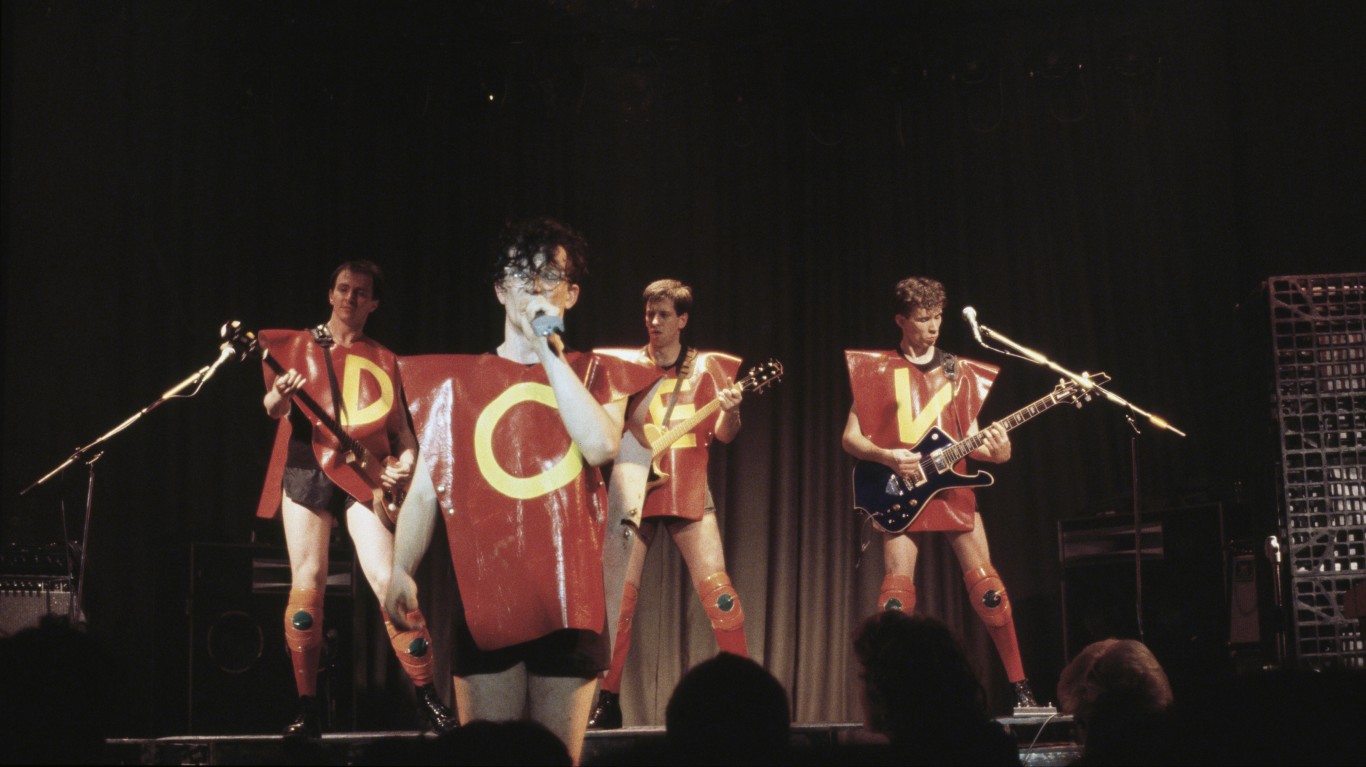
44. Whip It
> Artist: Devo
> Billboard Hot 100 entry date: Aug. 30, 1980
> Total weeks on Billboard Hot 100: 25
> Listen here
The Akron, Ohio-based punk rockers, once called by David Bowie “the band of the future,” posted their biggest hit, “Whip It,” at its Hot 100 peak in November 1980. The sadomasochistic-themed music video became popular with the advent of MTV in the early 1980s.
[in-text-ad-2]
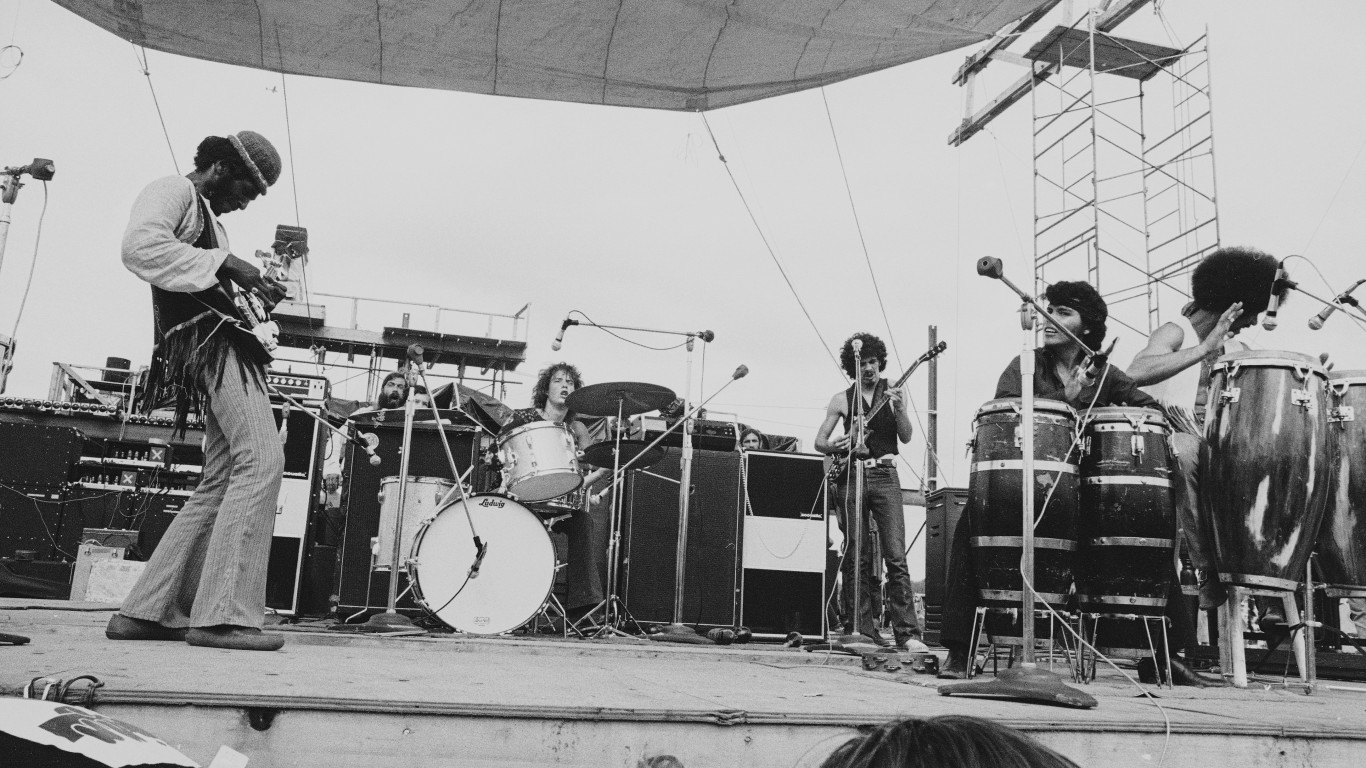
43. Black Magic Woman
> Artist: Santana
> Billboard Hot 100 entry date: Nov. 14, 1970
> Total weeks on Billboard Hot 100: 13
> Listen here
Before Carlos Santana’s renaissance in the late 1990s, his biggest hit had been “Black Magic Woman.” This was actually a cover of a bluesy song performed by the original Fleetwood Mac, and the Mexican-American guitar master added a more sultry Latin sound to the song. “Black Magic Woman” rose to No. 4 on the Billboard Hot 100 in January of 1971.
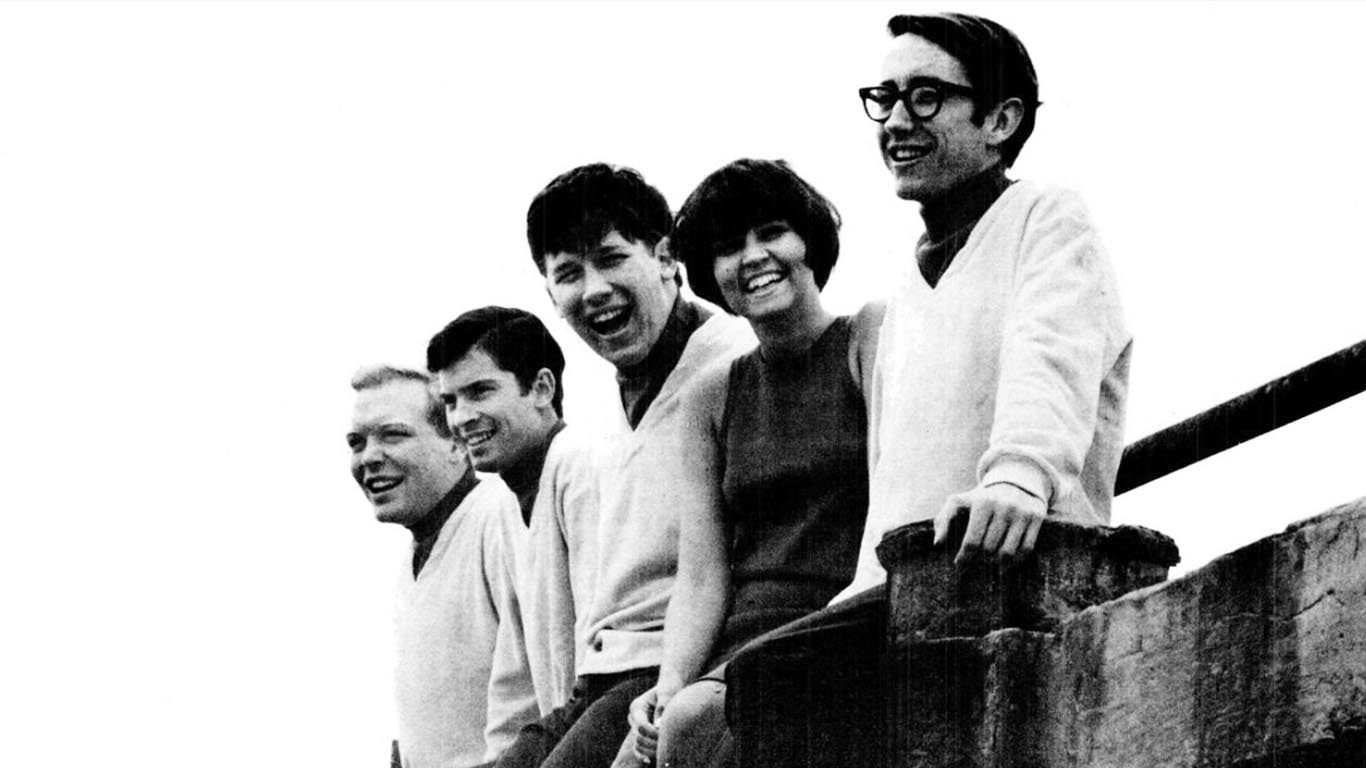
42. You Were on My Mind
> Artist: We Five
> Billboard Hot 100 entry date: July 24, 1965
> Total weeks on Billboard Hot 100: 15
> Listen here
We Five were a folk-rock group from California whose time in the music limelight was brief. Their biggest hit was a remake of the Ian & Sylvia song “You Were on My Mind,” which climbed to No. 3 on the Billboard Hot 100.
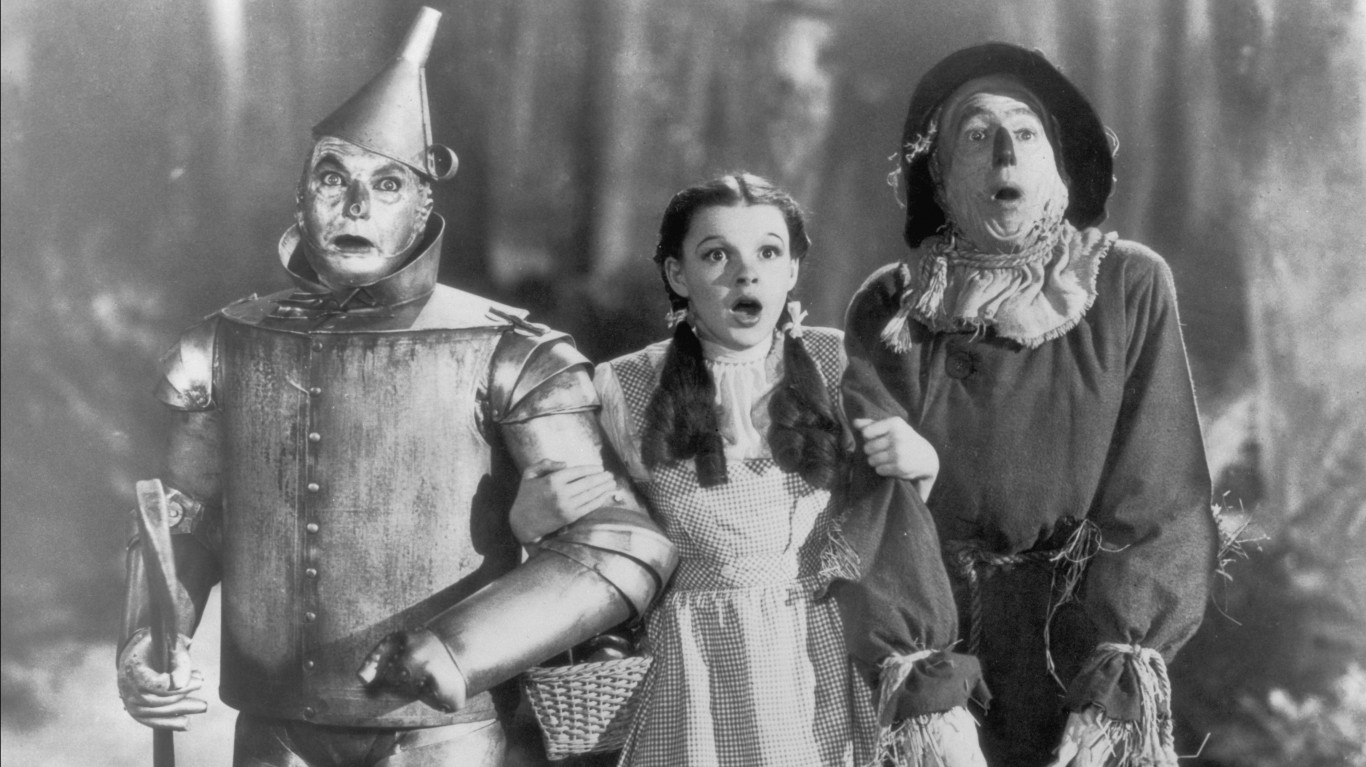
41. Over the Rainbow
> Artist: Judy Garland
> Billboard Hot 100 entry date: N/A
> Total weeks on Billboard Hot 100: N/A
> Listen here
According to cover songs database SecondHandSongs, “Over the Rainbow” has been covered by other musicians more than 1,000 times. Yet Judy Garland’s original recording for “The Wizard of Oz,” performed at age 17, remains the greatest. The song won an Academy Award in 1940.
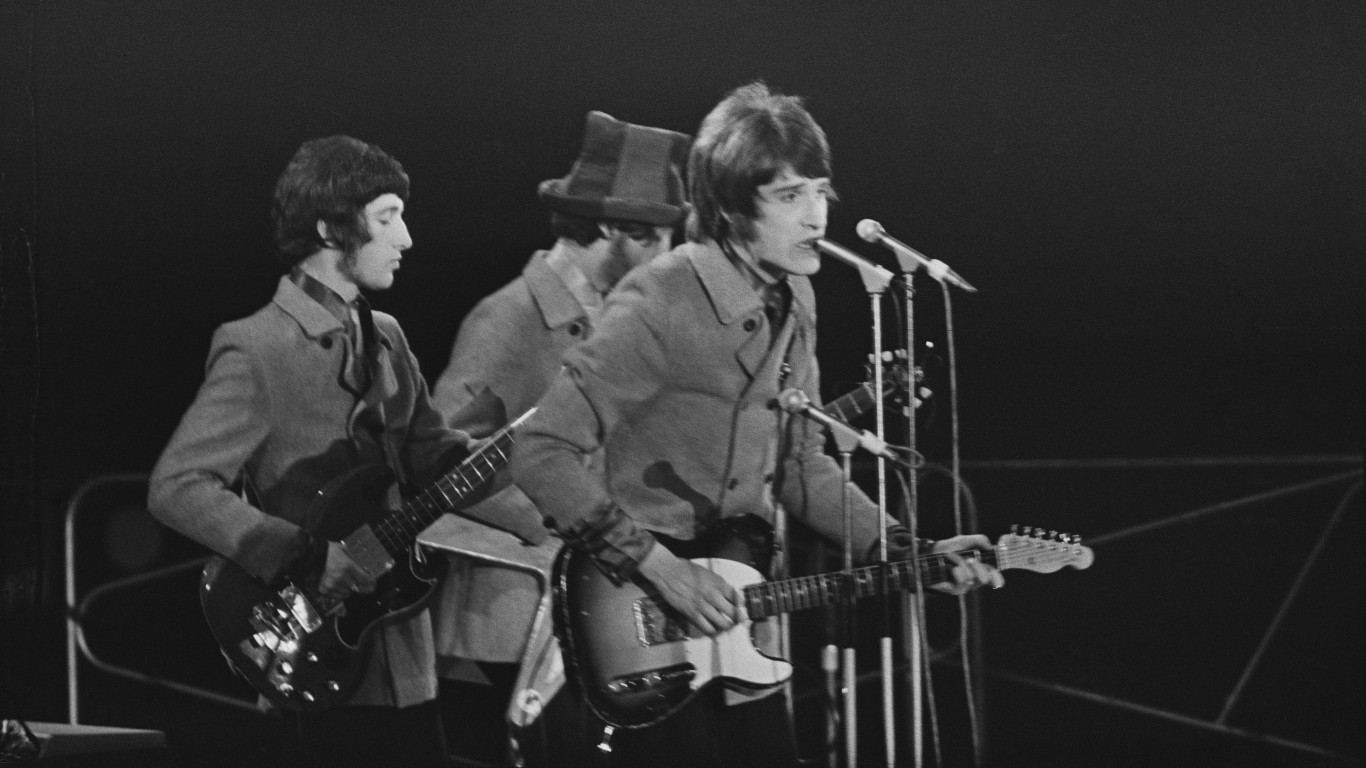
40. All Day and All of the Night
> Artist: The Kinks
> Billboard Hot 100 entry date: Dec. 26, 1964
> Total weeks on Billboard Hot 100: 12
> Listen here
The rockers who were part of the British Invasion in the 1960s had five top-10 hits. “All Day and All of the Night” was one of two of their songs to reach the top 10 on the Billboard Hot 100 in 1965.
[in-text-ad]

39. Loser
> Artist: Beck
> Billboard Hot 100 entry date: Jan. 29, 1994
> Total weeks on Billboard Hot 100: 24
> Listen here
Alt-rocker Beck (born Bek David Campbell) scored his lone top-10 hit “Loser” in 1994. Beck said he wrote the song as kind of a joke. He said a friend kept calling him a loser, so he incorporated that into the chorus of the song.
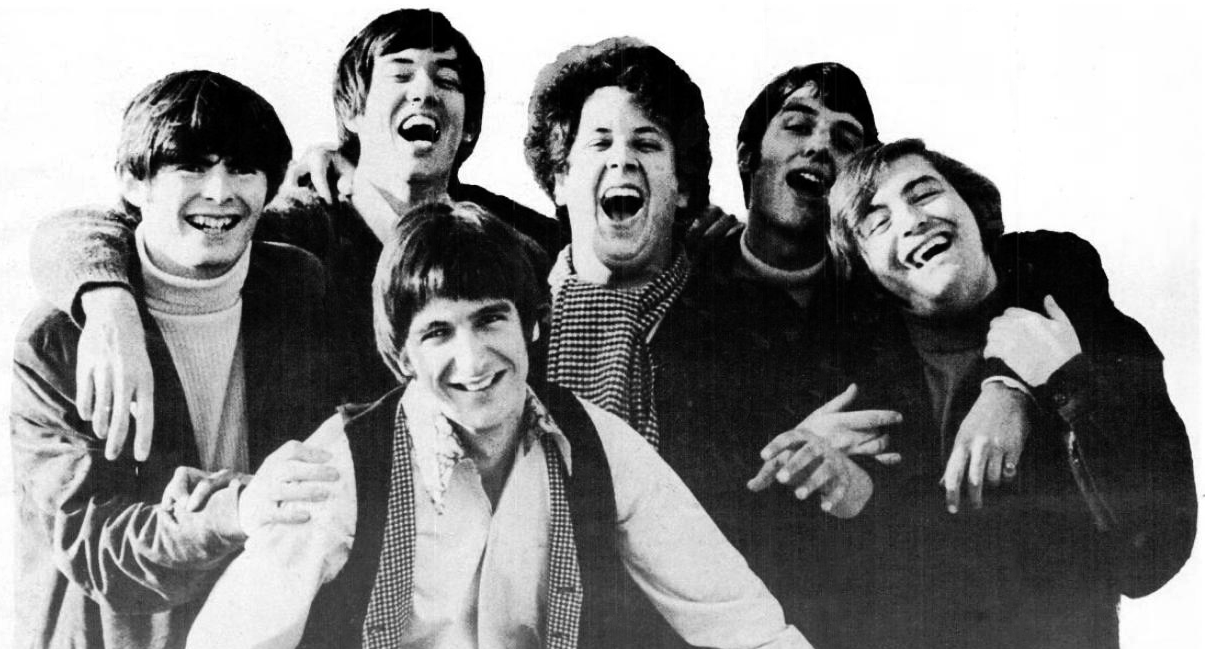
38. Happy Together
> Artist: The Turtles
> Billboard Hot 100 entry date: Feb. 11, 1967
> Total weeks on Billboard Hot 100: 15
> Listen here
“Happy Together” was the signature song for the Los Angeles-based pop group. The single went to No. 1 on the Billboard Hot 100, their lone chart-topper, and had the distinction of knocking off the Beatles’ “Penny Lane” from the top perch.
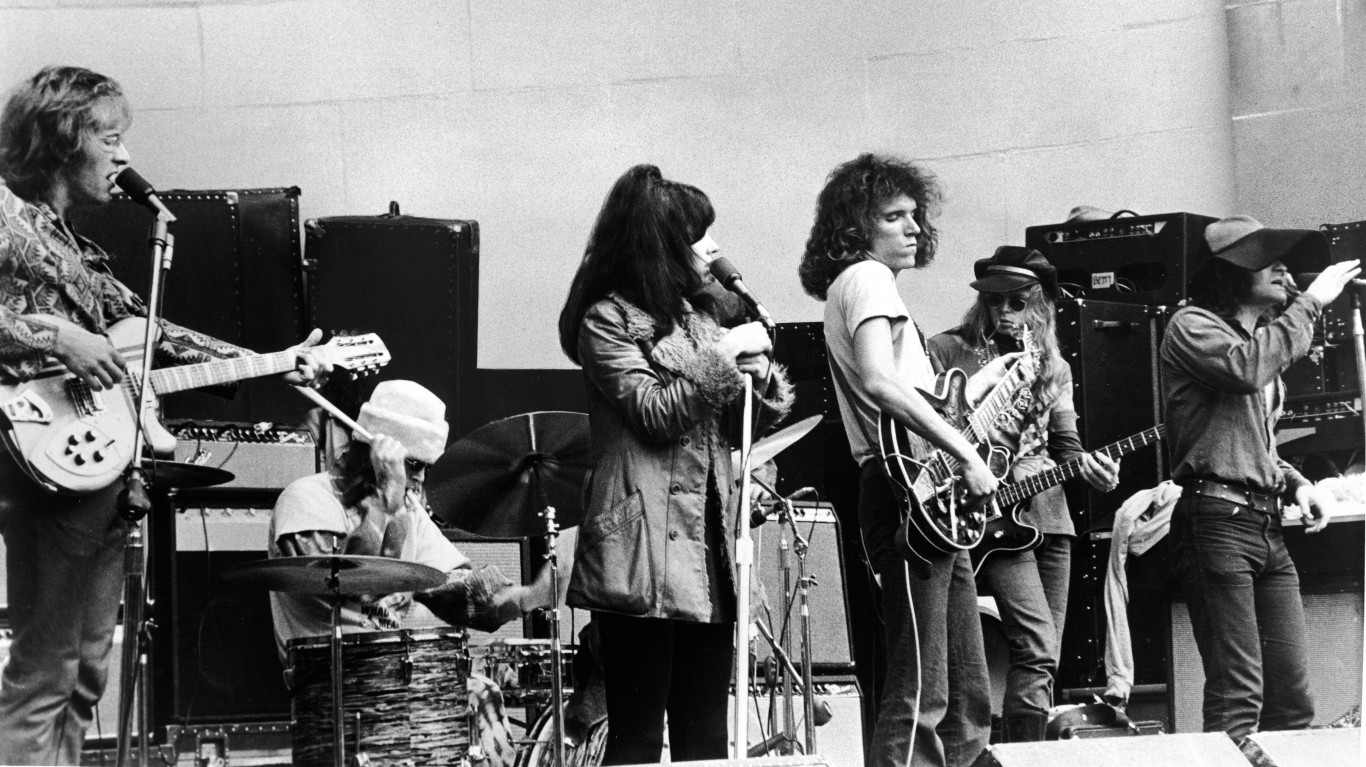
37. White Rabbit
> Artist: Jefferson Airplane
> Billboard Hot 100 entry date: June 24, 1967
> Total weeks on Billboard Hot 100: 10
> Listen here
“White Rabbit” is an unabashed song about drug use that includes allusions to Lewis Carroll’s “Alice’s Adventures In Wonderland.” Lead singer Grace Slick urges listeners to “feed your head,” a call to liberate your mind and your senses. Young people were listening — the song was the San Francisco group’s second biggest single, reaching No. 8 in July of 1967. The song was covered extensively by artists such as Patti Smith and Pink.
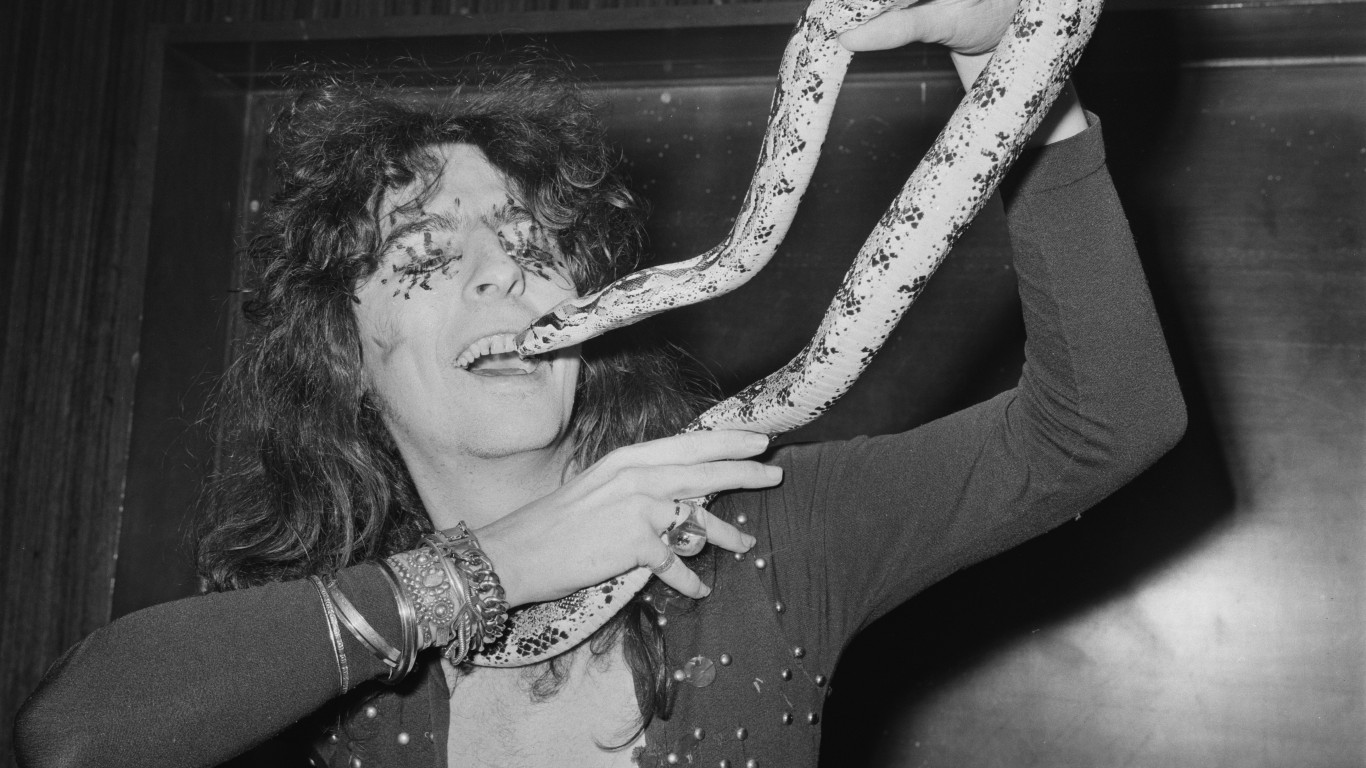
36. School’s Out
> Artist: Alice Cooper
> Billboard Hot 100 entry date: June 3, 1972
> Total weeks on Billboard Hot 100: 13
> Listen here
The early goth rocker was a major rock act in the early 1970s, and “School’s Out,” a playfully defiant single, rose to No.7 on the Billboard Hot 100 in July of 1972. It was the title track of Cooper’s fifth studio album.
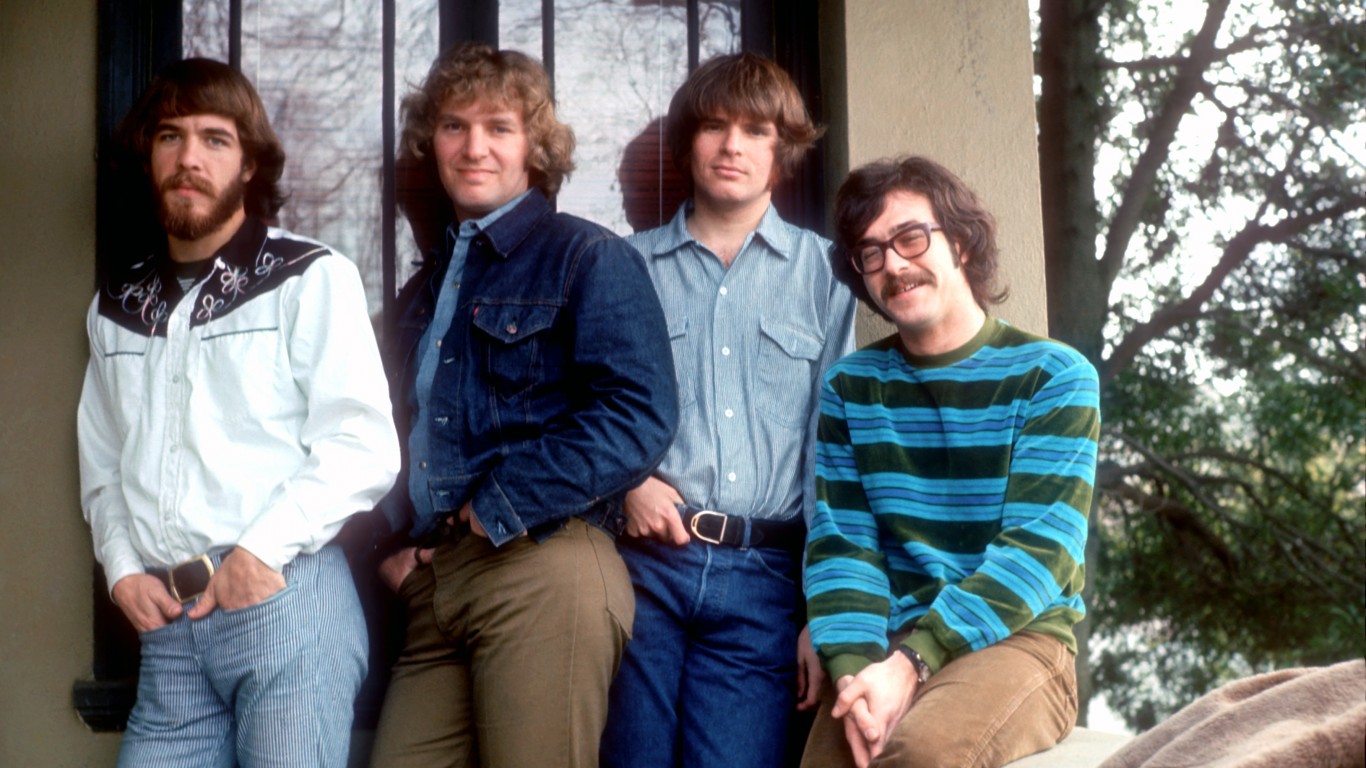
35. Proud Mary
> Artist: Creedence Clearwater Revival
> Billboard Hot 100 entry date: Jan. 25, 1969
> Total weeks on Billboard Hot 100: 14
> Listen here
The California rockers had four songs reach No. 2 on the Billboard Hot 100, and “Proud Mary” was their biggest hit and the song most associated with the band. Ike and Tina Turner, among the many artists who covered the song, did a scorching version, which went to No. 4 on Billboard.
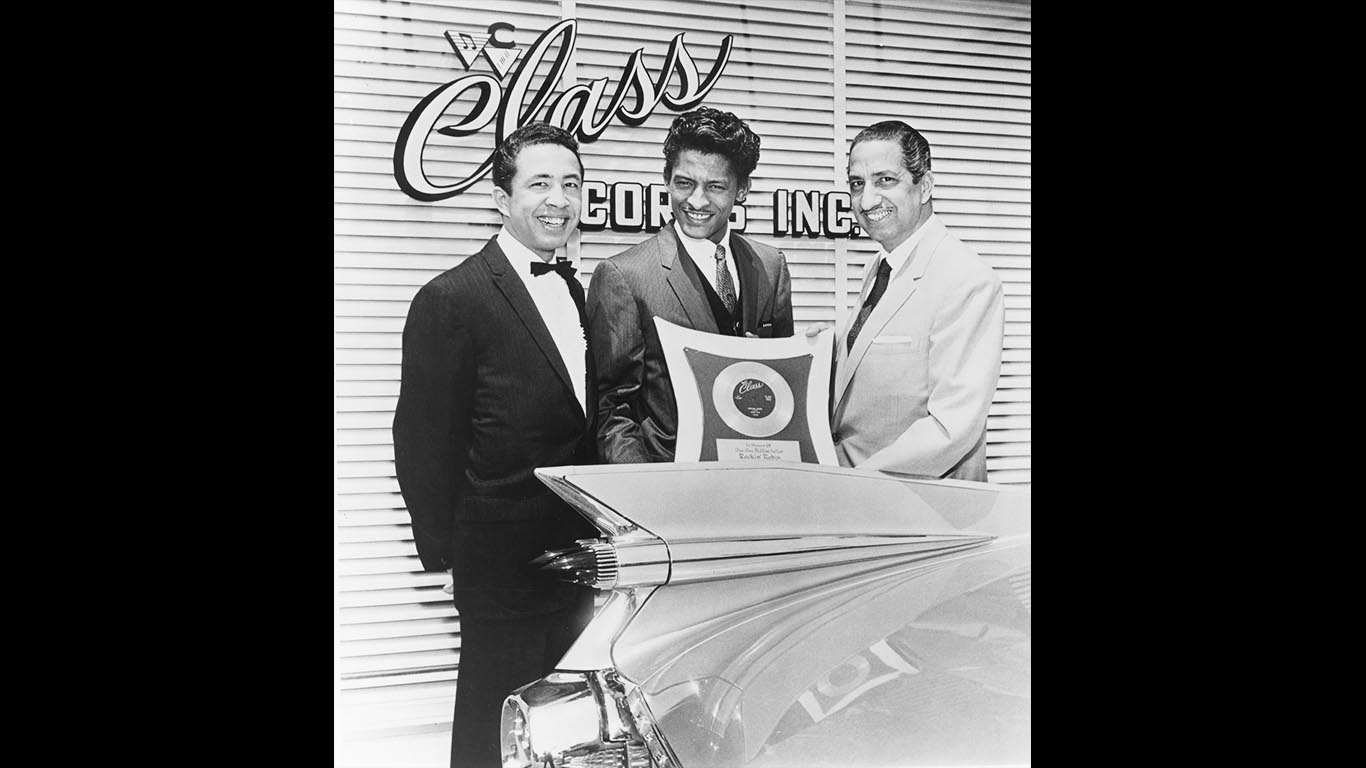
34. Rockin’ Robin
> Artist: Bobby Day
> Billboard Hot 100 entry date: Aug. 4, 1958
> Total weeks on Billboard Hot 100: 21
> Listen here
Rock music in the 1950s was about having fun, and that was the case with “Rockin’ Robin.” It was the biggest hit for Bobby Day, a musician from Texas, whose single went to No. 2 on the Billboard Hot 100 in October of 1958. The song has been covered by a number of artists, most notably by Michael Jackson in 1972, which also went to No. 2.
[in-text-ad-2]
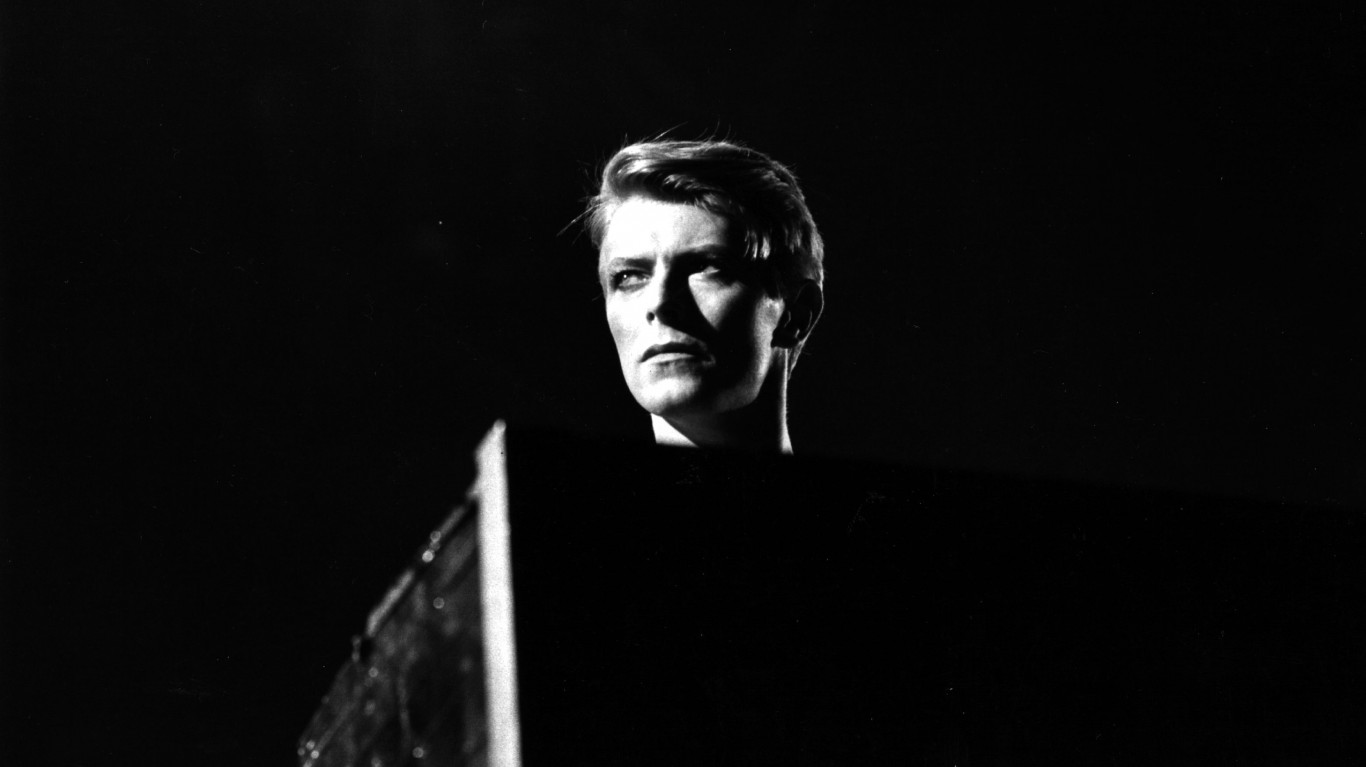
33. Golden Years
> Artist: David Bowie
> Billboard Hot 100 entry date: Dec. 13, 1975
> Total weeks on Billboard Hot 100: 21
> Listen here
Rock and roll’s most famous chameleon reached the top 10 with “Golden Years” in April of 1976. Bowie reportedly offered the song to Elvis Presley, who turned it down. The song was used as the theme song of Stephen King’s “Golden Years” and in the movie “A Knight’s Tale.”
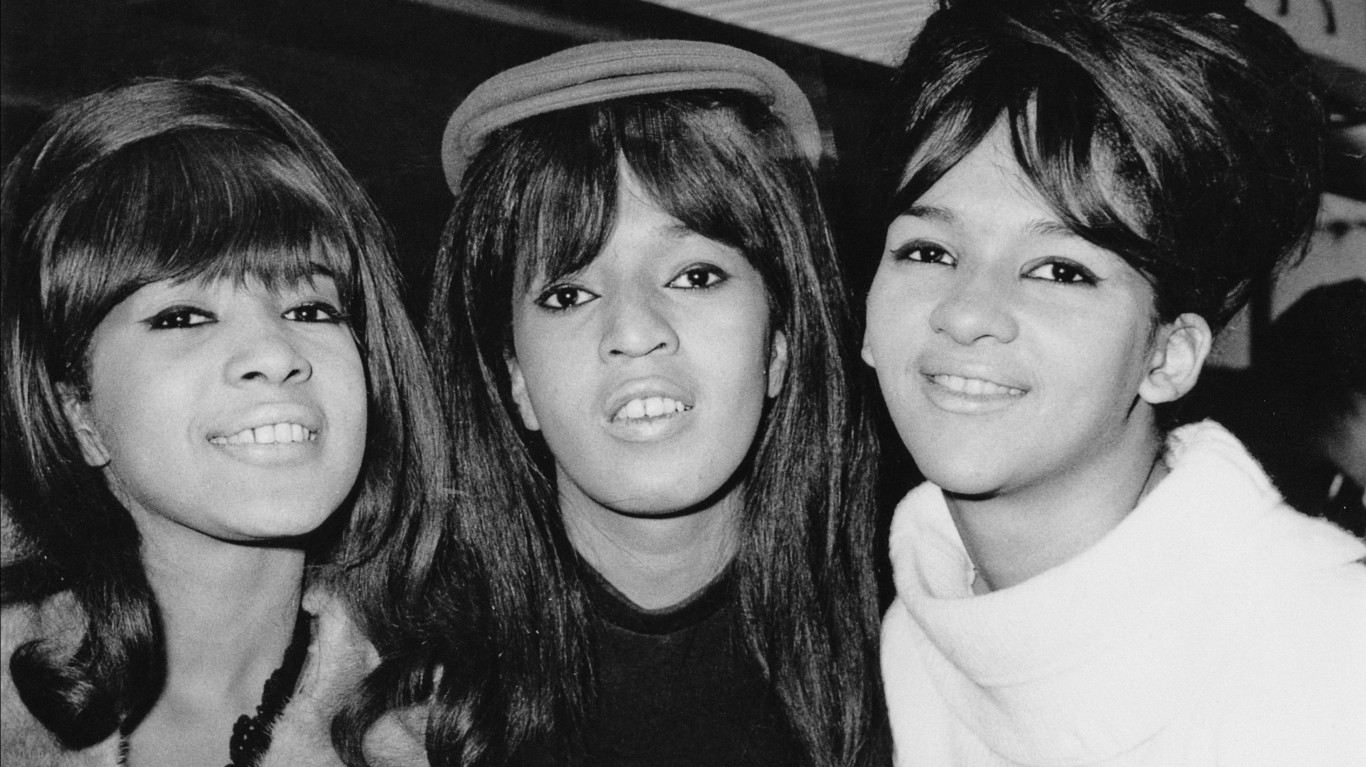
32. Be My Baby
> Artist: The Ronettes
> Billboard Hot 100 entry date: Aug. 31, 1963
> Total weeks on Billboard Hot 100: 13
> Listen here
Led by singer Ronnie Spector, girl group The Ronettes reached No. 2 on the Hot 100 in 1963 with their song “Be My Baby.” Written by Phil Spector, Jeff Barry, and Ellie Greenwich, the song has been referred to as “the greatest record ever produced” by the Beach Boys’ Brian Wilson.
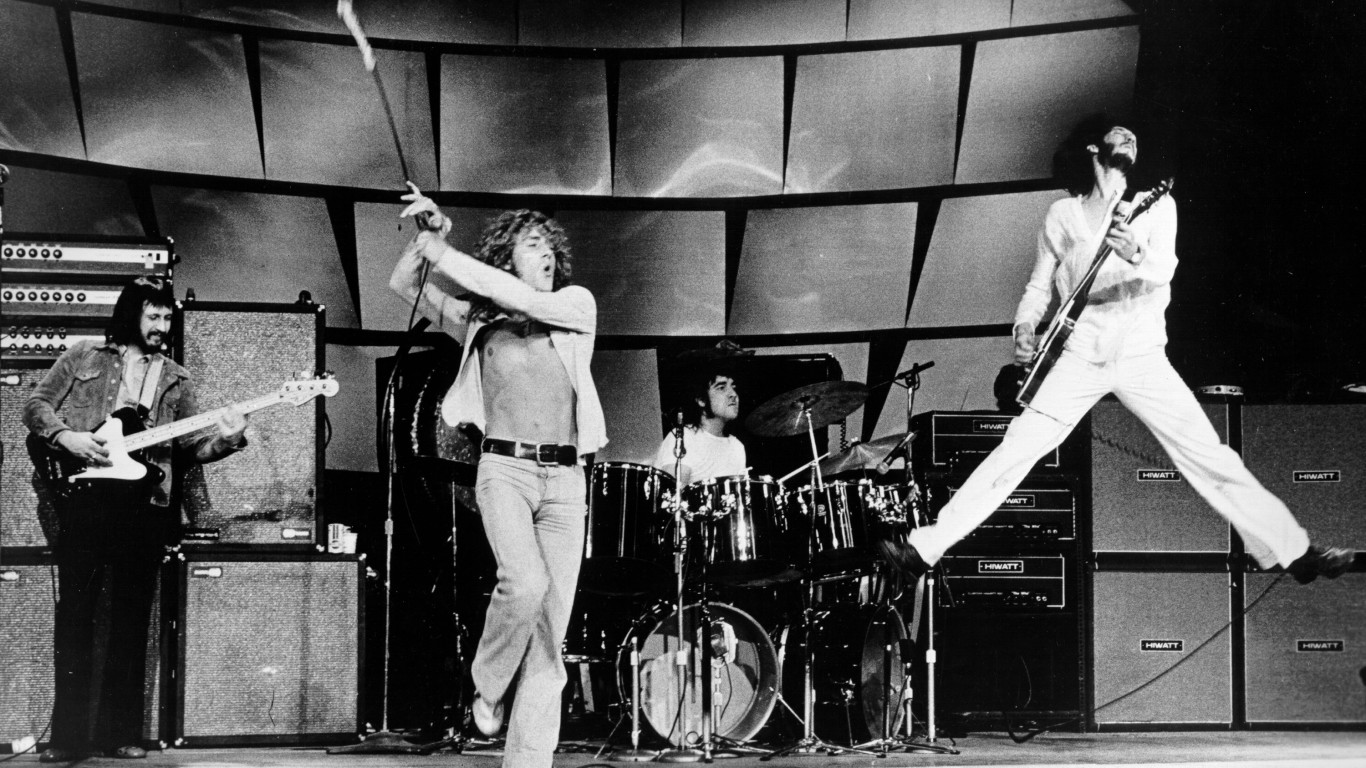
31. Won’t Get Fooled Again
> Artist: The Who
> Billboard Hot 100 entry date: July 17, 1971
> Total weeks on Billboard Hot 100: 13
> Listen here
With a running time of 8:32 minutes, “Won’t Get Fooled Again” is not a typical pop song. No matter. For nearly 50 years, the anti-anthem (“Meet the new boss, same as the old boss”) has been on the short list of the greatest rock songs of all time, remembered for its pioneering use of synthesizers, Pete Townshend’s growling guitar, Keith Moon’s thunderous drumming, and the most famous scream in rock history from Roger Daltrey. The song is used in the intro to the crime series “CSI: Miami.”
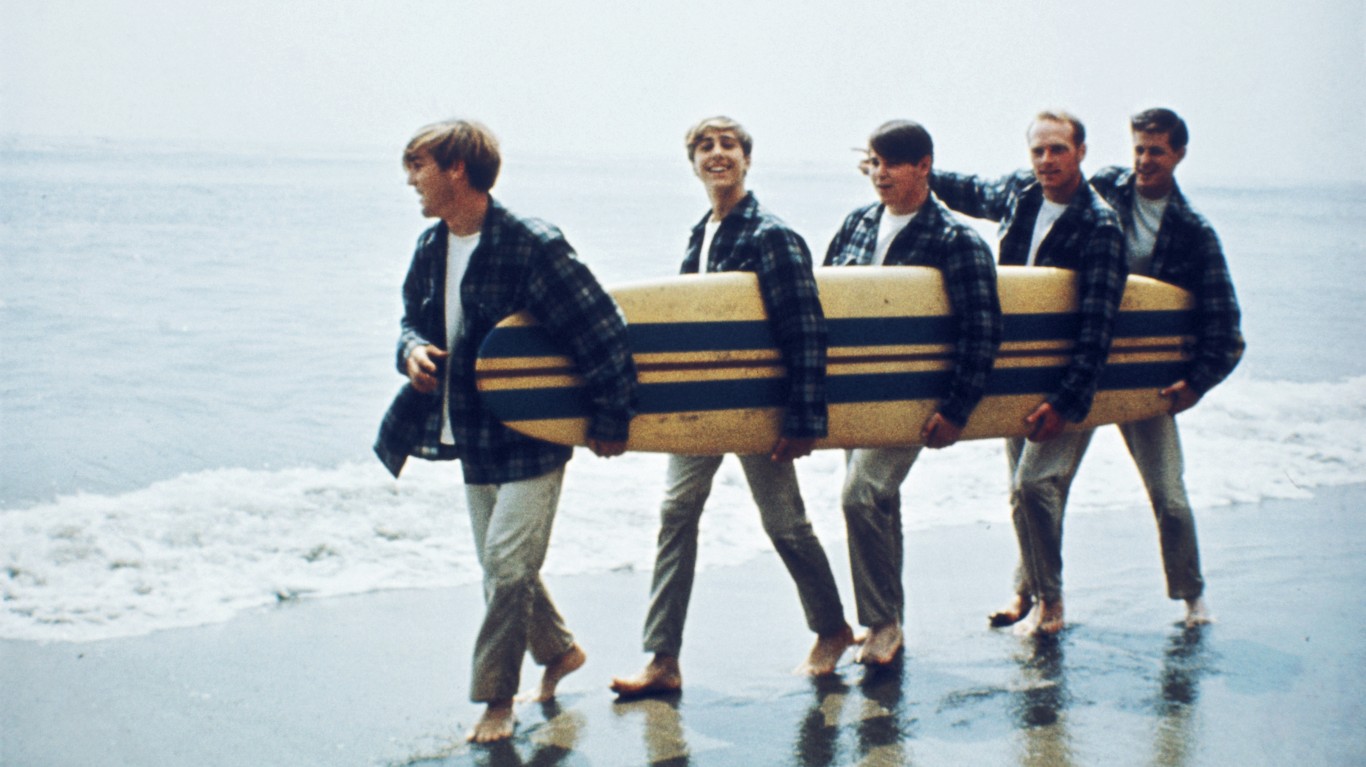
30. Surfin’ U.S.A.
> Artist: The Beach Boys
> Billboard Hot 100 entry date: March 23, 1963
> Total weeks on Billboard Hot 100: 25
> Listen here
“Surfin’ U.S.A.” is a paean to carefree youth. In early 1960s America, who could ask for more? “Surfin’ U.S.A.” was the Beach Boys’ first top-10 hit, reaching No. 3 in March of 1963. It would be viewed as lampooned by the Beatles when they sang “Back in the U.S.S.R.” on the “White Album” in 1968.
[in-text-ad]
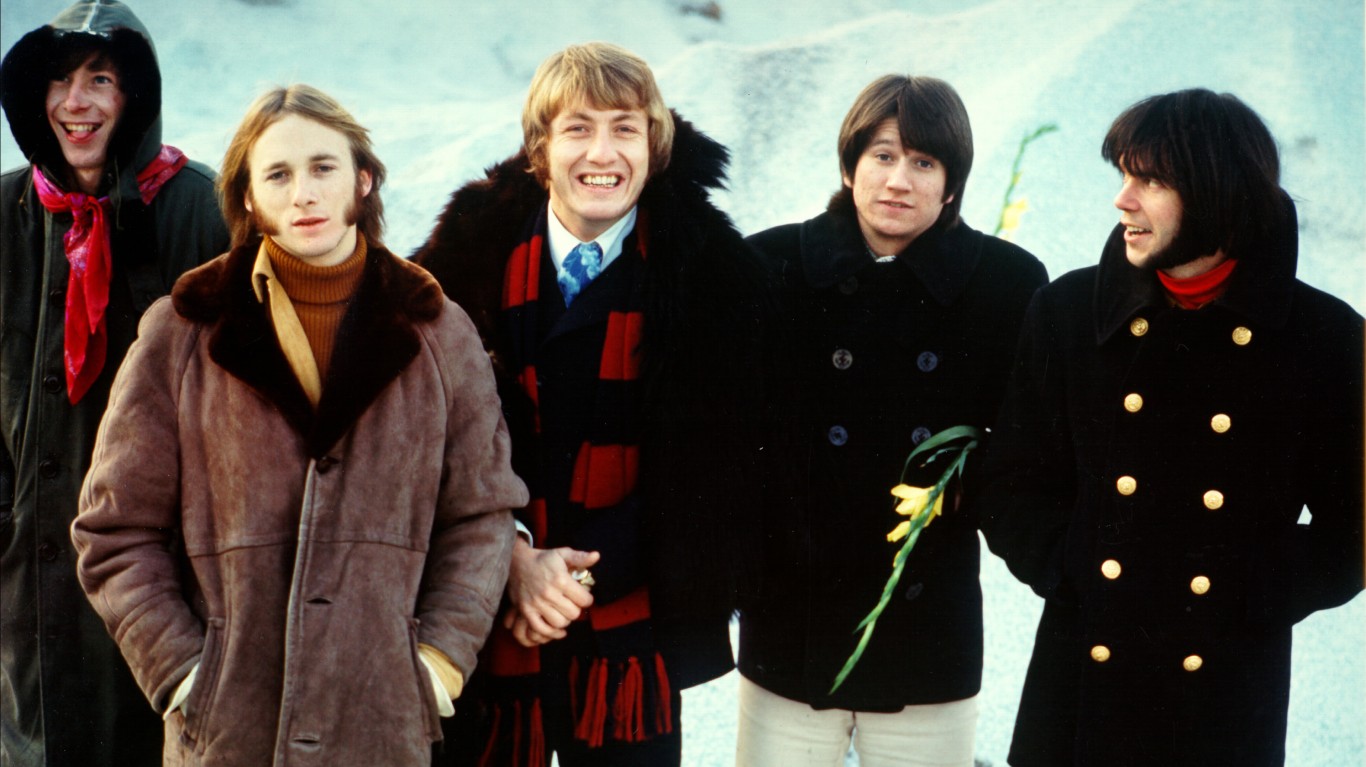
29. For What It’s Worth (Stop, Hey What’s That Sound)
> Artist: Buffalo Springfield
> Billboard Hot 100 entry date: Jan. 28, 1967
> Total weeks on Billboard Hot 100: 15
> Listen here
Many people believe that “For What It’s Worth (Stop, Hey What’s That Sound)” is a song protesting the Vietnam War. However, Stephen Stills wrote it in the aftermath of clashes between young people and police who were enforcing a curfew in Los Angeles in 1966. The song was Buffalo Springfield’s biggest hit, reaching No. 7 in March of 1967. Members of the band would eventually form the folk-rock group Crosby, Stills, Nash and Young.

28. Space Oddity
> Artist: David Bowie
> Billboard Hot 100 entry date: Jan. 27, 1973
> Total weeks on Billboard Hot 100: 15
> Listen here
In early 1973, as America was still trying to understand the quirky act of the famously androgynous English rocker, David Bowie notched his first top 40 American hit, as “Space Oddity” rose to No. 15 on the Billboard Hot 100. The song was inducted into The Rock and Roll Hall of Fame’s 500 Songs that Shaped Rock and Roll. “Space Oddity” was about a forlorn astronaut dealing with the void of space. When Elon Musk sent his Tesla Roadster into space, “Space Oddity” was blasting from the vehicle’s speakers.
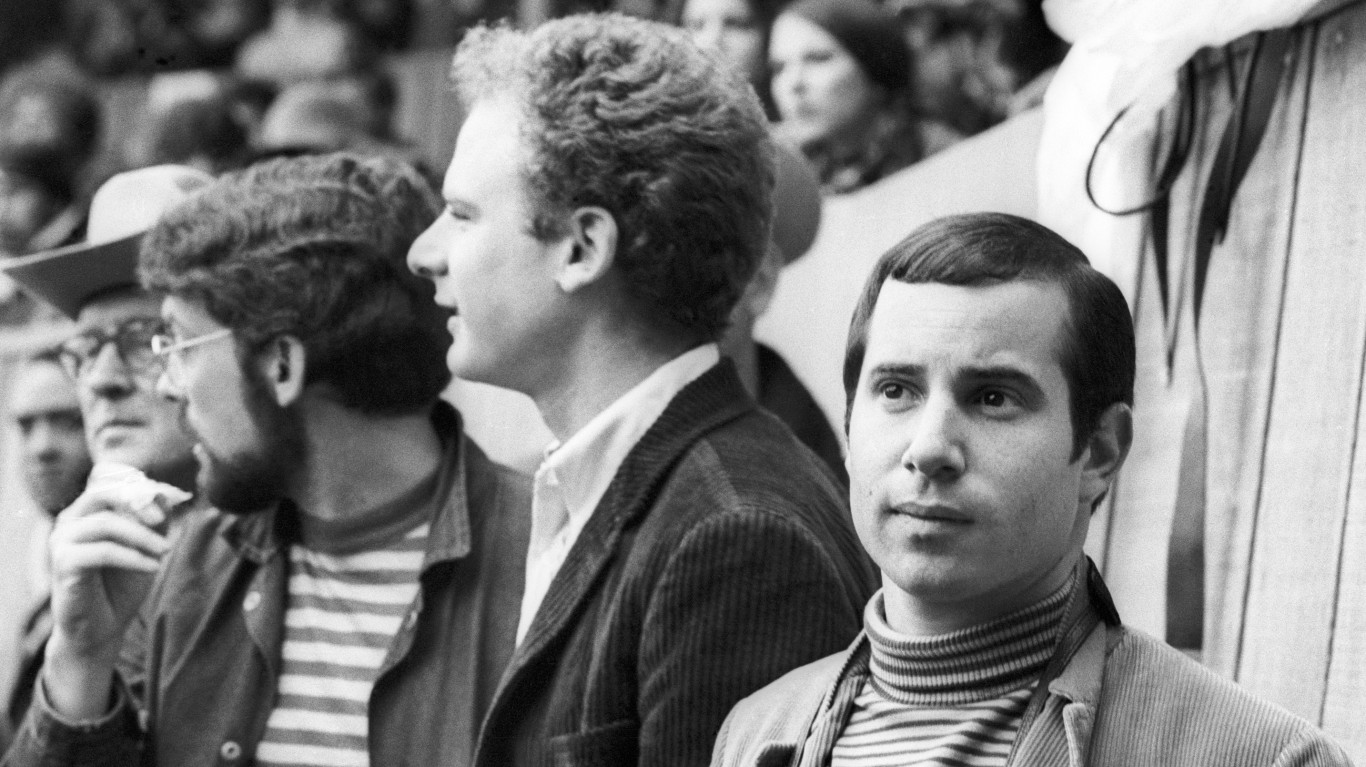
27. Bridge Over Troubled Water
> Artist: Simon & Garfunkel
> Billboard Hot 100 entry date: Feb. 7, 1970
> Total weeks on Billboard Hot 100: 14
> Listen here
The chart-topping title track of the folk-rock duo’s monumental album, and their final studio LP, won five Grammy Awards. Fifty years later, “Bridge Over Troubled Water” remains one of the most moving songs of the rock era. It became one of the most performed songs of the 20th century, with more than 50 artists, among them Elvis Presley and Aretha Franklin, covering the song.
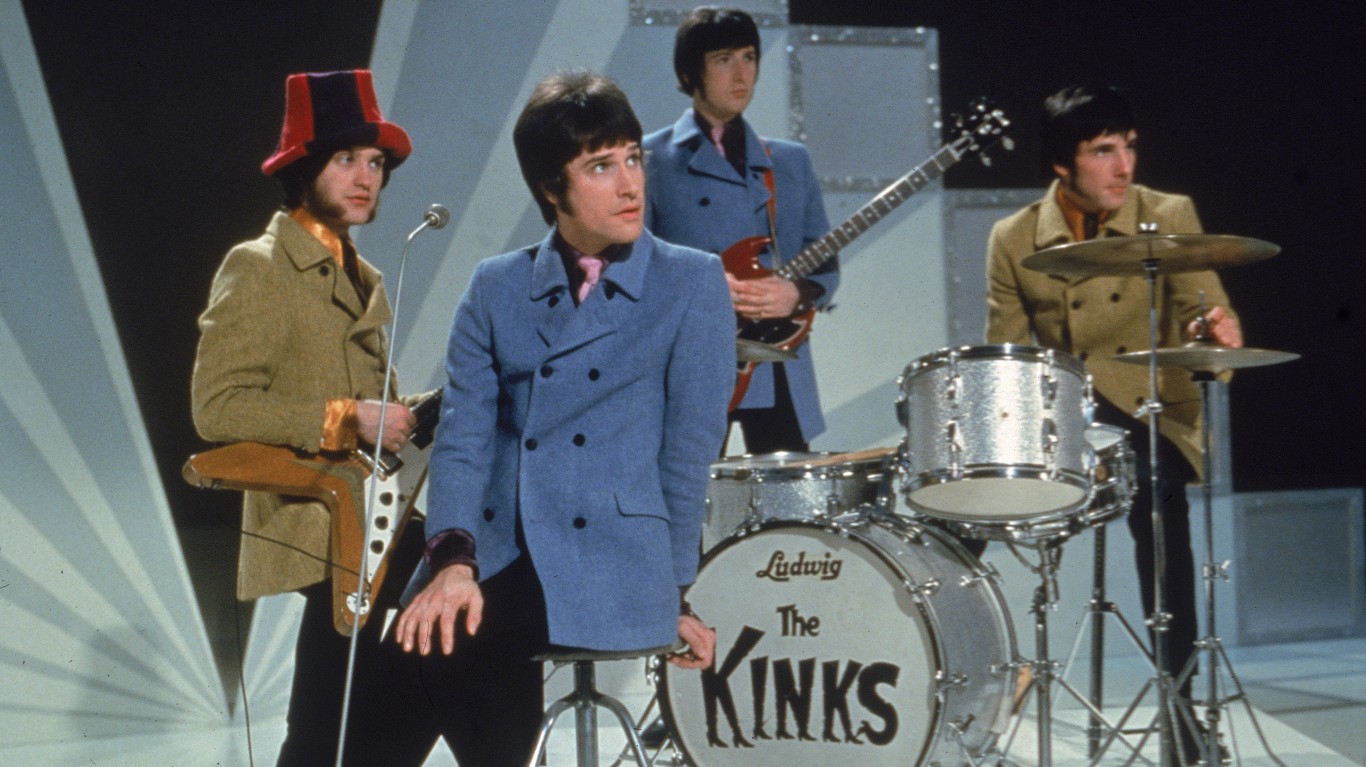
26. You Really Got Me
> Artist: The Kinks
> Billboard Hot 100 entry date: Sept. 26, 1964
> Total weeks on Billboard Hot 100: 15
> Listen here
The Kinks, led by quarrelsome brothers Ray and Dave Davies, took the well-traveled British Invasion route to the United States in the mid-1960s. They scored five top-10 hits on American shores. “You Really Got Me” reached No. 7 on the Billboard Hot 100 in November of 1964.
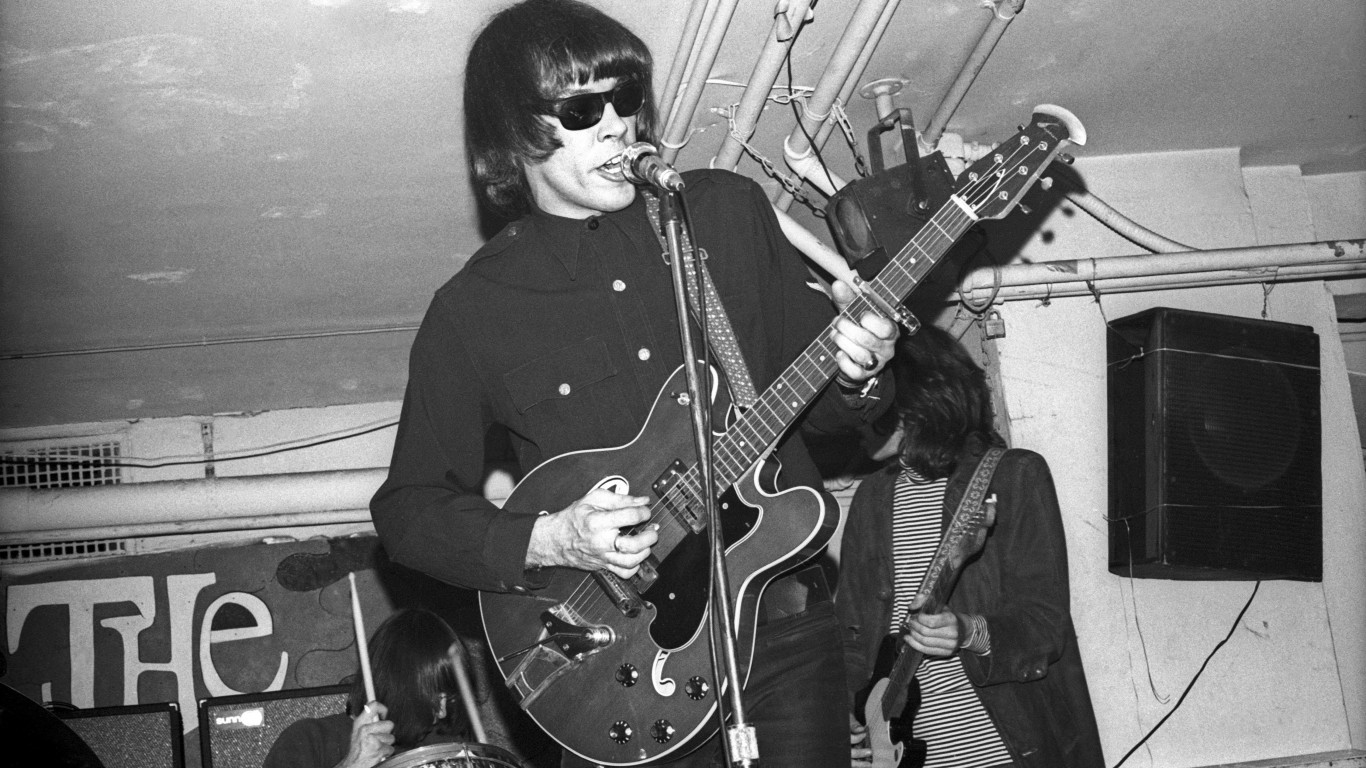
25. Born to Be Wild
> Artist: Steppenwolf
> Billboard Hot 100 entry date: July 13, 1968
> Total weeks on Billboard Hot 100: 13
> Listen here
The Canadian-American band enjoyed success in the late 1960s with memorable rockers such as “Born to Be Wild,” an anthem about unfettered freedom. The song was Steppenwolf’s biggest hit, going to No. 2 on the Billboard Hot 100. “Born to Be Wild” is heard during the beginning of the counterculture film “Easy Rider” starring Peter Fonda and Dennis Hopper.
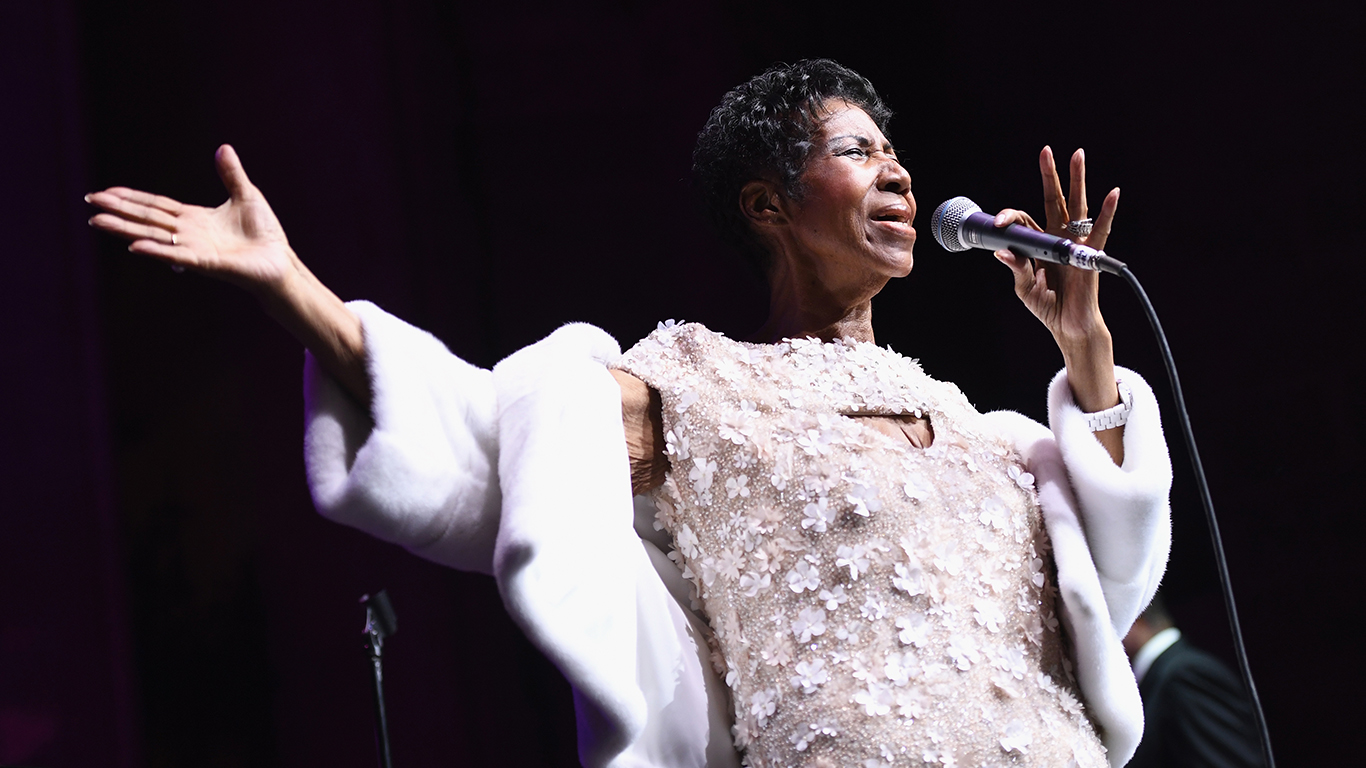
24. Respect
> Artist: Aretha Franklin
> Billboard Hot 100 entry date: April 29, 1967
> Total weeks on Billboard Hot 100: 12
> Listen here
One of only two No. 1 hits released by Aretha Franklin, “Respect” is one of the greatest R&B and rock songs of all time. The song was originally released by Otis Redding but it was Franklin, along with her sister Carolyn, who came up with the song’s famous “sock it to me” portion.
[in-text-ad-2]
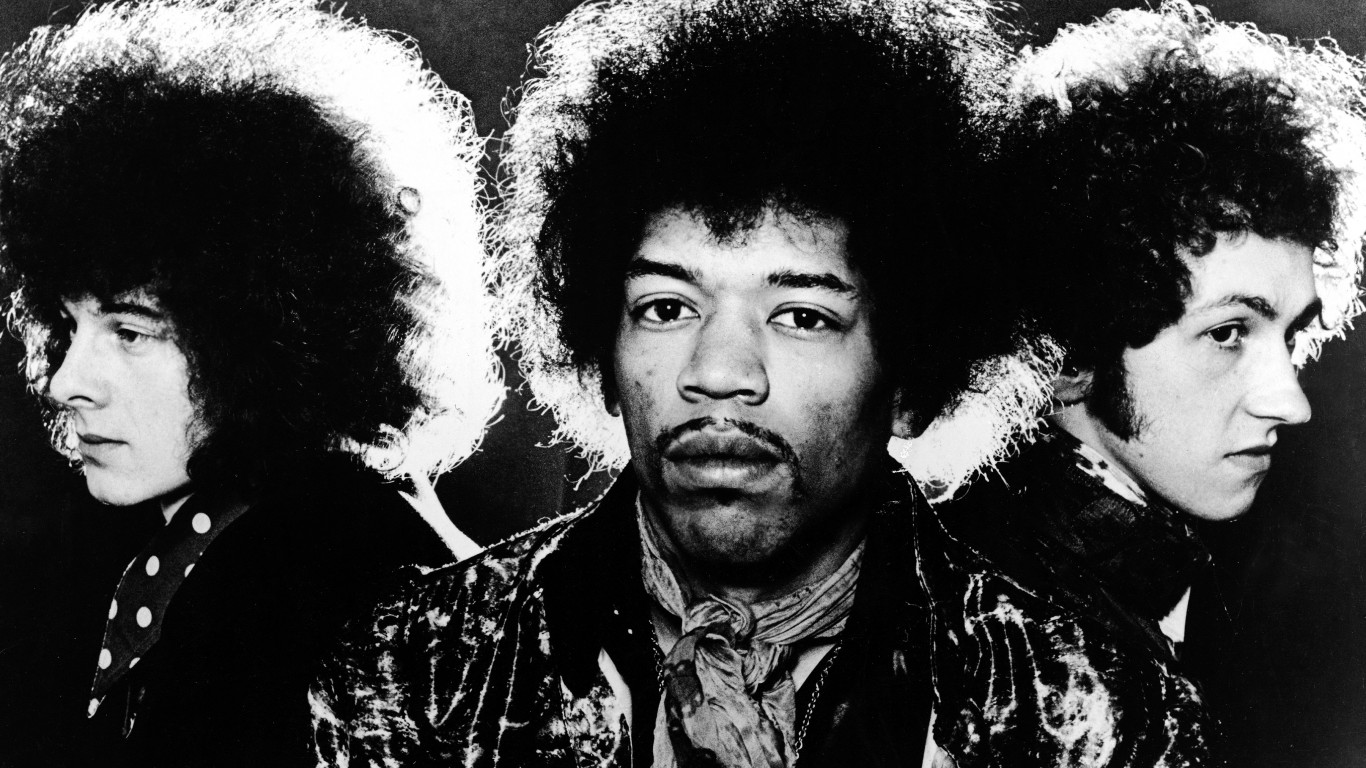
23. All Along the Watchtower
> Artist: Jimi Hendrix
> Billboard Hot 100 entry date: Sept. 21, 1968
> Total weeks on Billboard Hot 100: 9
> Listen here
Jimi Hendrix admired the work of Bob Dylan and brought his vision to the Dylan-penned song “All Along the Watchtower,” which continues to enjoy frequent airplay on classic rock radio stations. “All Along the Watchtower” was the most successful single for Hendrix, rising to No. 20 on the Billboard Hot 100.
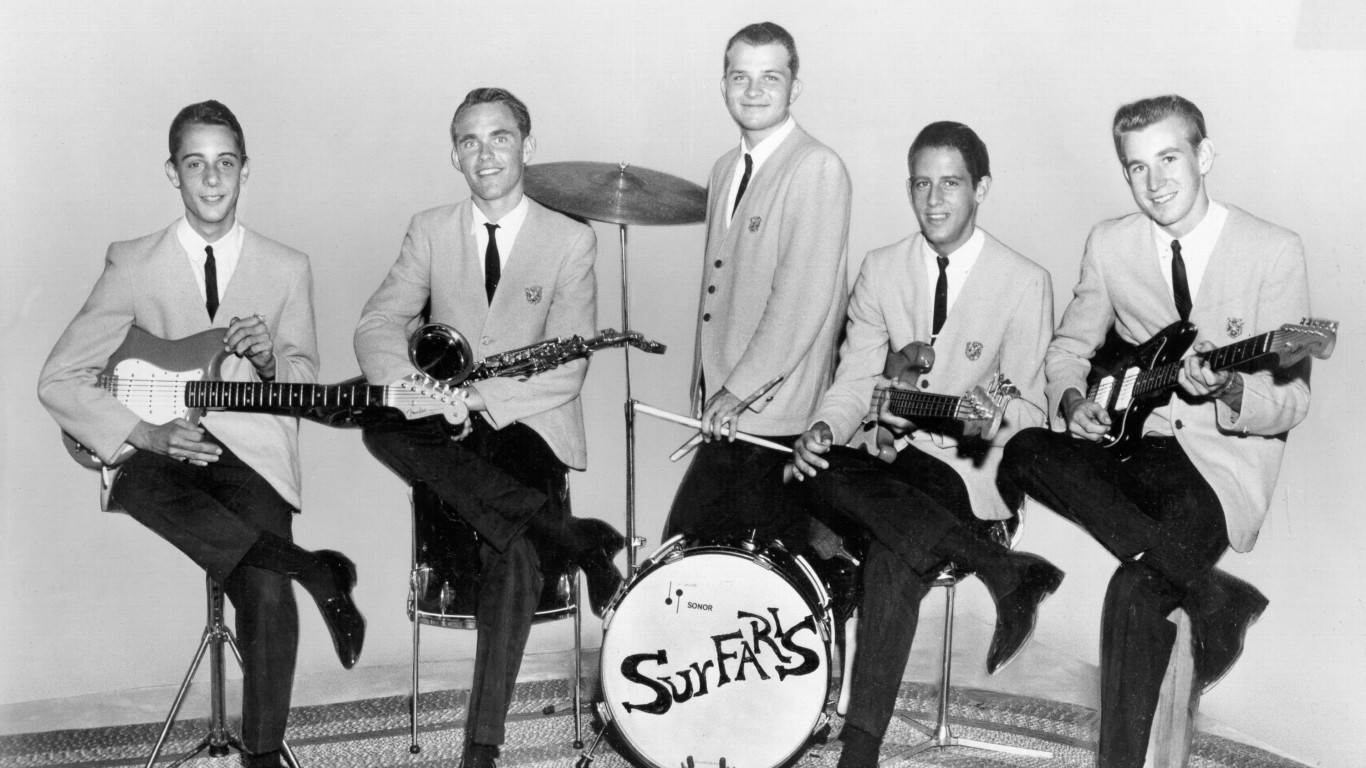
22. Wipe Out
> Artist: The Surfaris
> Billboard Hot 100 entry date: June 22, 1963
> Total weeks on Billboard Hot 100: 30
> Listen here
Every band worth its salt in the 1960s learned the guitar riff and the drum solo to “Wipe Out,” which reached No. 2 on the Billboard Hot 100. The Surfaris were inducted into the Musicians Hall of Fame in 2019 for the instrumental song.
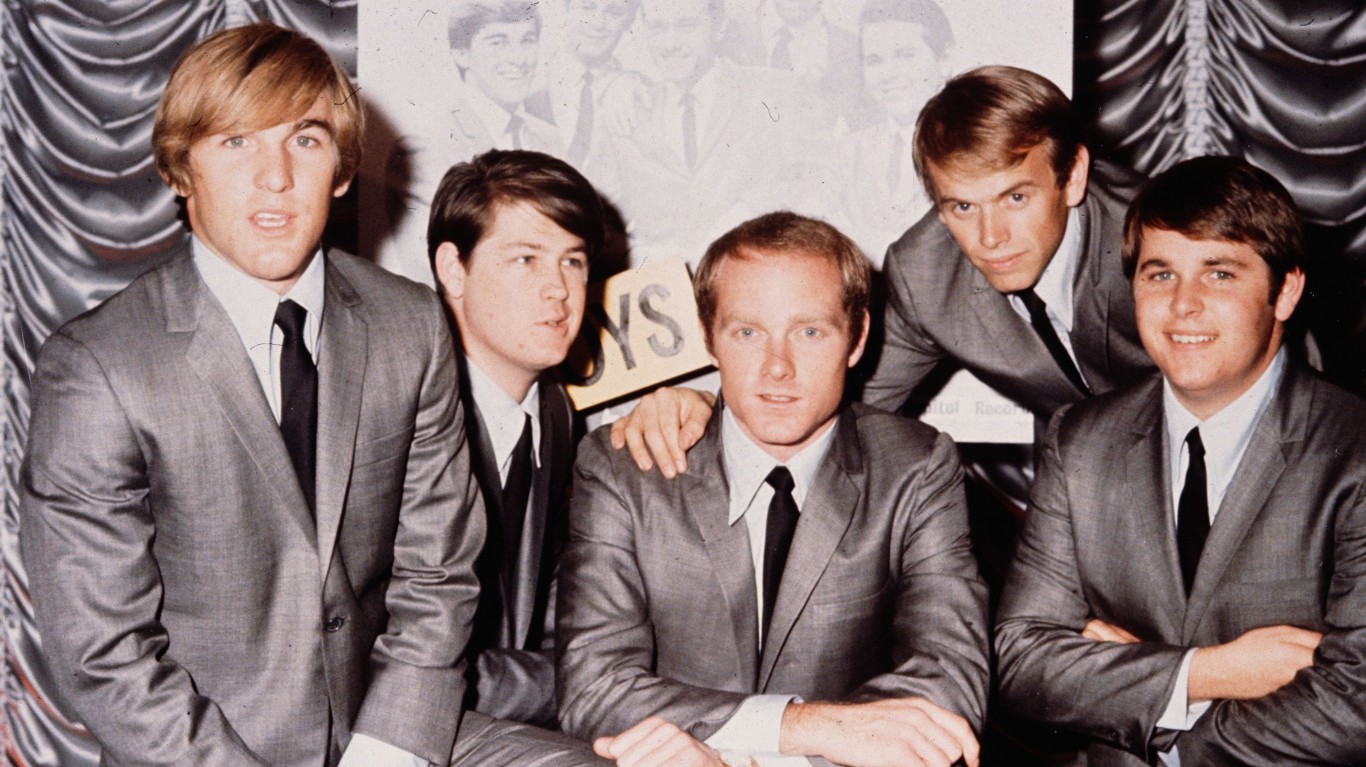
21. I Get Around
> Artist: The Beach Boys
> Billboard Hot 100 entry date: May 23, 1964
> Total weeks on Billboard Hot 100: 15
> Listen here
One of the great youth anthems of the 1960s, “I Get Around” was the first of four No. 1 singles for the band that symbolized the freewheeling California lifestyle.

20. Immigrant Song
> Artist: Led Zeppelin
> Billboard Hot 100 entry date: Nov. 21, 1970
> Total weeks on Billboard Hot 100: 13
> Listen here
One of the most recognizable songs of the rock era, “Immigrant Song” has been played in movies such as “Shrek the Third,” “School of Rock,” and “Thor: Ragnarok.” It’s the first track and single from the “Led Zeppelin III” album and is on regular rotation on classic rock radio stations. Grunge rockers Nirvana did a cover of the song as did Moby and Ann Wilson to name a few.
[in-text-ad]
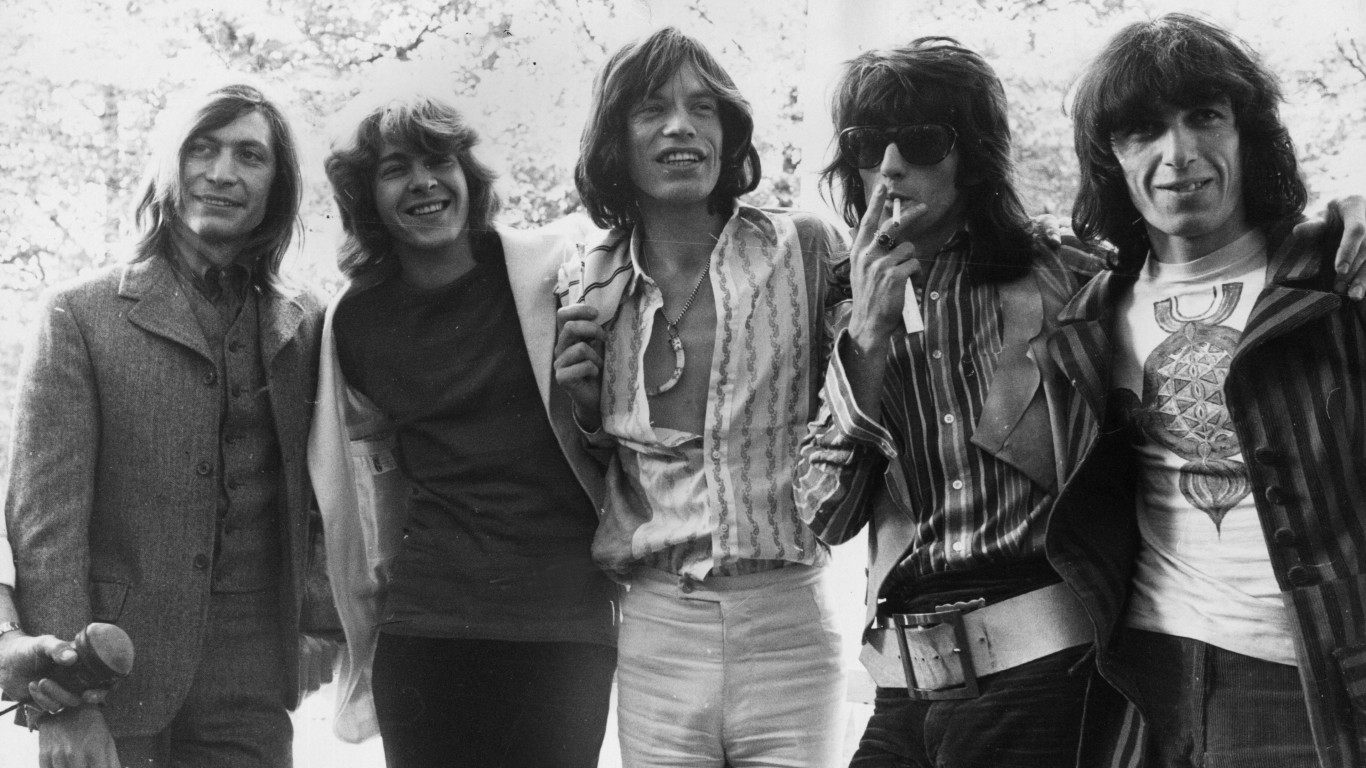
19. Honky Tonk Women
> Artist: The Rolling Stones
> Billboard Hot 100 entry date: July 19, 1969
> Total weeks on Billboard Hot 100: 15
> Listen here
“Honky Tonk Women,” about the licentious lifestyle, brought the Rolling Stones their fifth No.1 hit on the Billboard Hot 100 in August 1969. It was also their first chart-topper after the death of ousted guitarist Brian Jones.
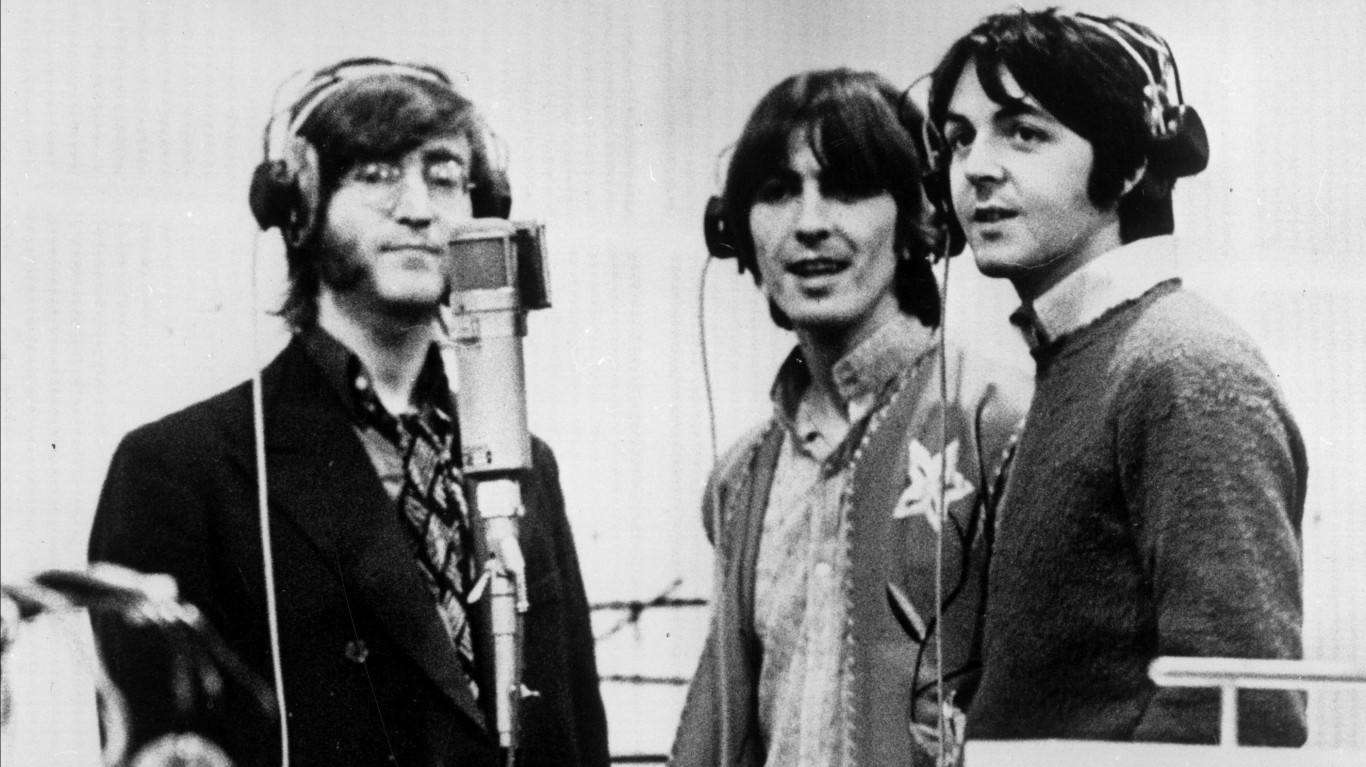
18. Yesterday
> Artist: The Beatles
> Billboard Hot 100 entry date: Sept. 25, 1965
> Total weeks on Billboard Hot 100: 11
> Listen here
“Yesterday,” a lament about lost love, is probably the most covered song of all time. At first, Paul McCartney thought he had accidentally plagiarized the melody but once he was confident he had not, he started writing the lyrics. It was originally titled “Scrambled Eggs,” but McCartney eventually, fortunately, changed it to “Yesterday,” which went to No. 1 in October of 1965.
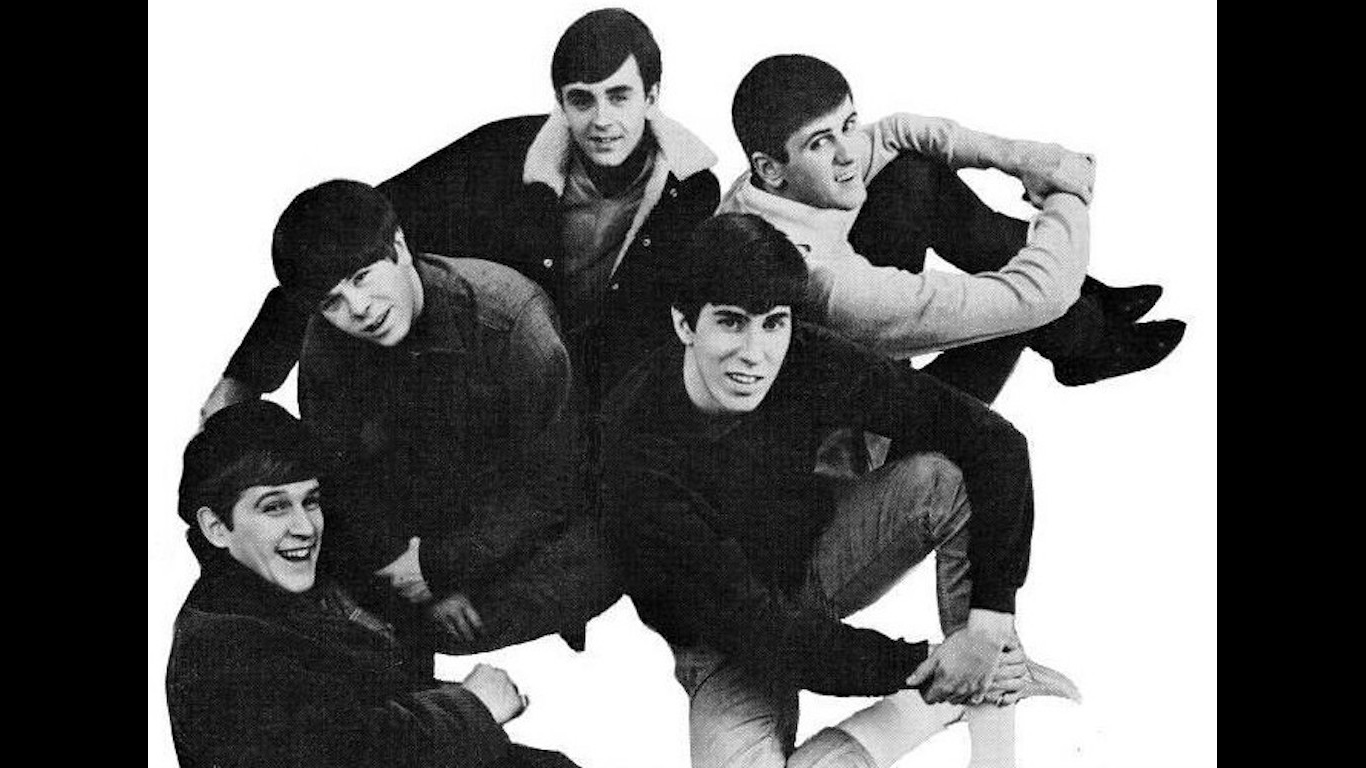
17. Louie Louie
> Artist: The Kingsmen
> Billboard Hot 100 entry date: Nov. 9, 1963
> Total weeks on Billboard Hot 100: 18
> Listen here
The big party favorite with the indecipherable lyrics prompted an FBI probe to see if obscenity laws were violated. The song — initially performed by Richard Berry & The Pharaohs — was the biggest hit for the Portland, Oregon-based group The Kingsmen, reaching No. 2 on the Billboard Hot 100. The song also achieved lasting fame when it was played in the 1978 comedy “National Lampoon’s Animal House.”
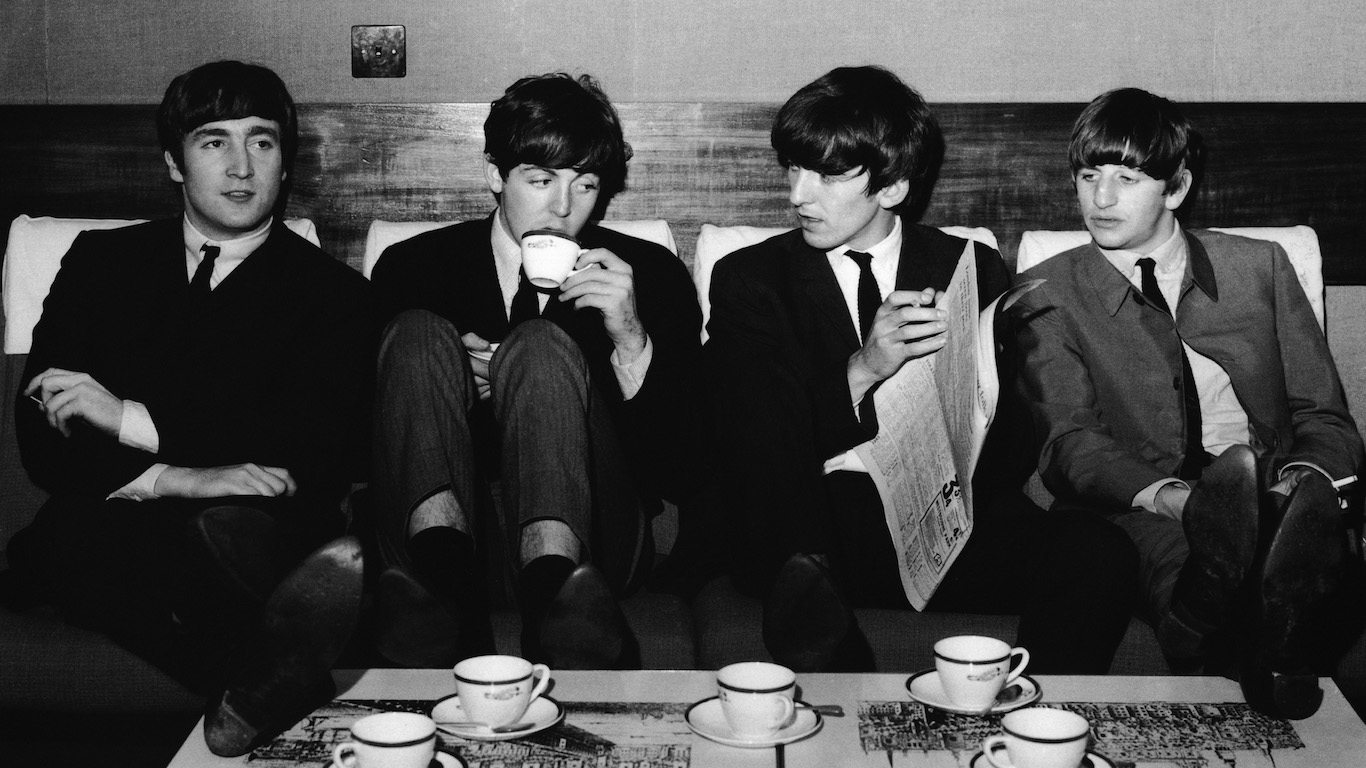
16. Let It Be
> Artist: The Beatles
> Billboard Hot 100 entry date: March 21, 1970
> Total weeks on Billboard Hot 100: 14
> Listen here
The gospel-inspired Beatles hit that tapped into the anxiety of the tumultuous late 1960s. The Paul McCartney-penned single was the Fab Four’s next-to-last chart-topper, reaching No. 1 for two weeks in April 1970. McCartney said he was inspired by his mother named Mary — who had passed away about 10 years earlier — who came to him in a dream and comforted him during a personal time of turmoil.
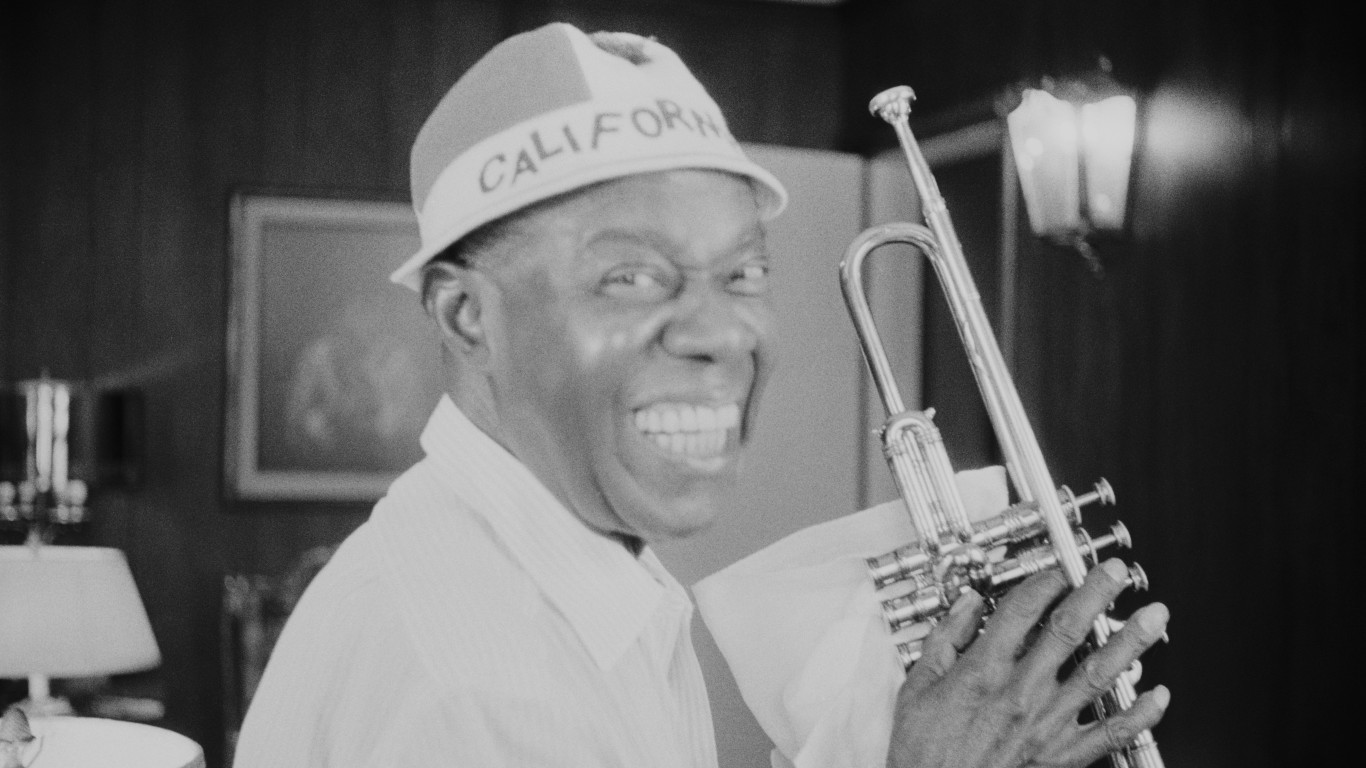
15. What a Wonderful World
> Artist: Louis Armstrong
> Billboard Hot 100 entry date: Feb. 20, 1988
> Total weeks on Billboard Hot 100: 11
> Listen here
“What a Wonderful World” is the song most associated with beloved trumpet player Louis Armstrong. Originally released in 1968, the slow tempo ballad that was turned down by Tony Bennett failed to find an audience in the United States, though it did top the charts in the U.K. The song reached No. 32 on the Billboard Hot 100 in 1988 when it was played in the movie “Good Morning, Vietnam.” The song has been used in at least 50 TV shows and films.
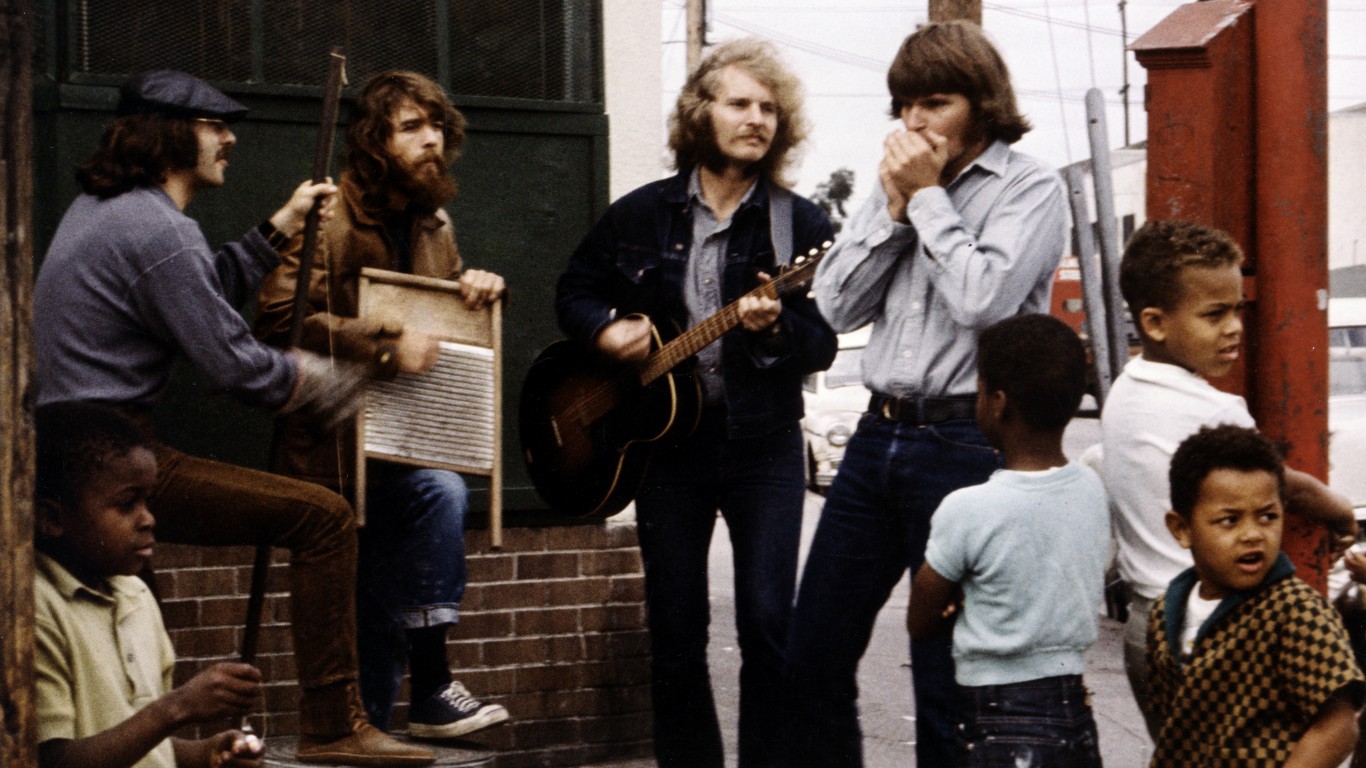
14. Bad Moon Rising
> Artist: Creedence Clearwater Revival
> Billboard Hot 100 entry date: May 3, 1969
> Total weeks on Billboard Hot 100: 14
> Listen here
This song is one of true rock gems from one of America’s most popular and influential bands from the 1960s. “Bad Moon Rising” was one of five CCR songs to reach No. 2, and it gained more attention after its use in the movie “American Werewolf in London” when the unfortunate victim of a werewolf’s bite transforms into a werewolf.
[in-text-ad-2]
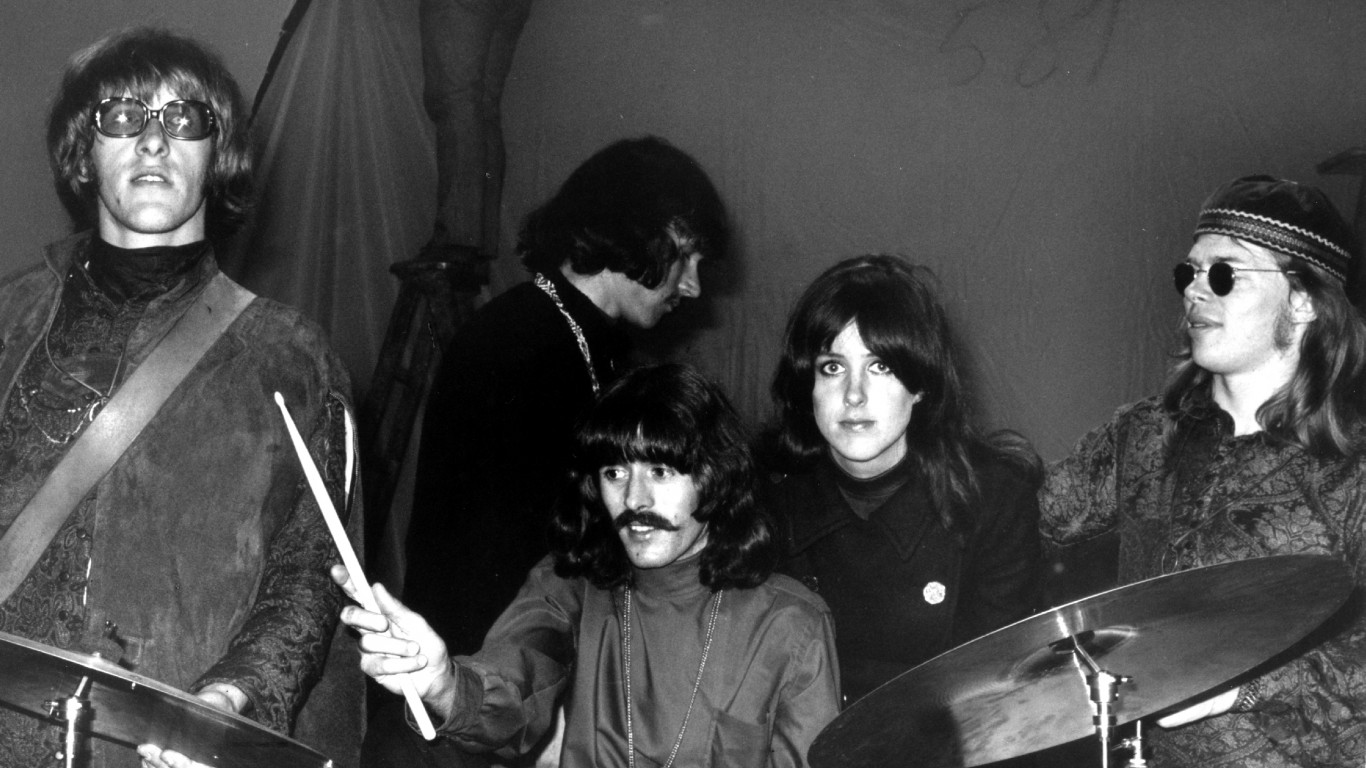
13. Somebody to Love
> Artist: Jefferson Airplane
> Billboard Hot 100 entry date: April 1, 1967
> Total weeks on Billboard Hot 100: 15
> Listen here
The poster children for the Haight-Ashbury psychedelic and countercultural scene in the 1960s scored their biggest hit on the Billboard Hot 100 with “Somebody to Love.” The song had been released by the Bay Area band The Great Society that included singer Grace Slick. The song failed to find an audience. Slick left the band to join Jefferson Airplane and brought the song with her. “Somebody to Love” reached No. 5, just before the arrival of the famed Summer of Love in 1967.
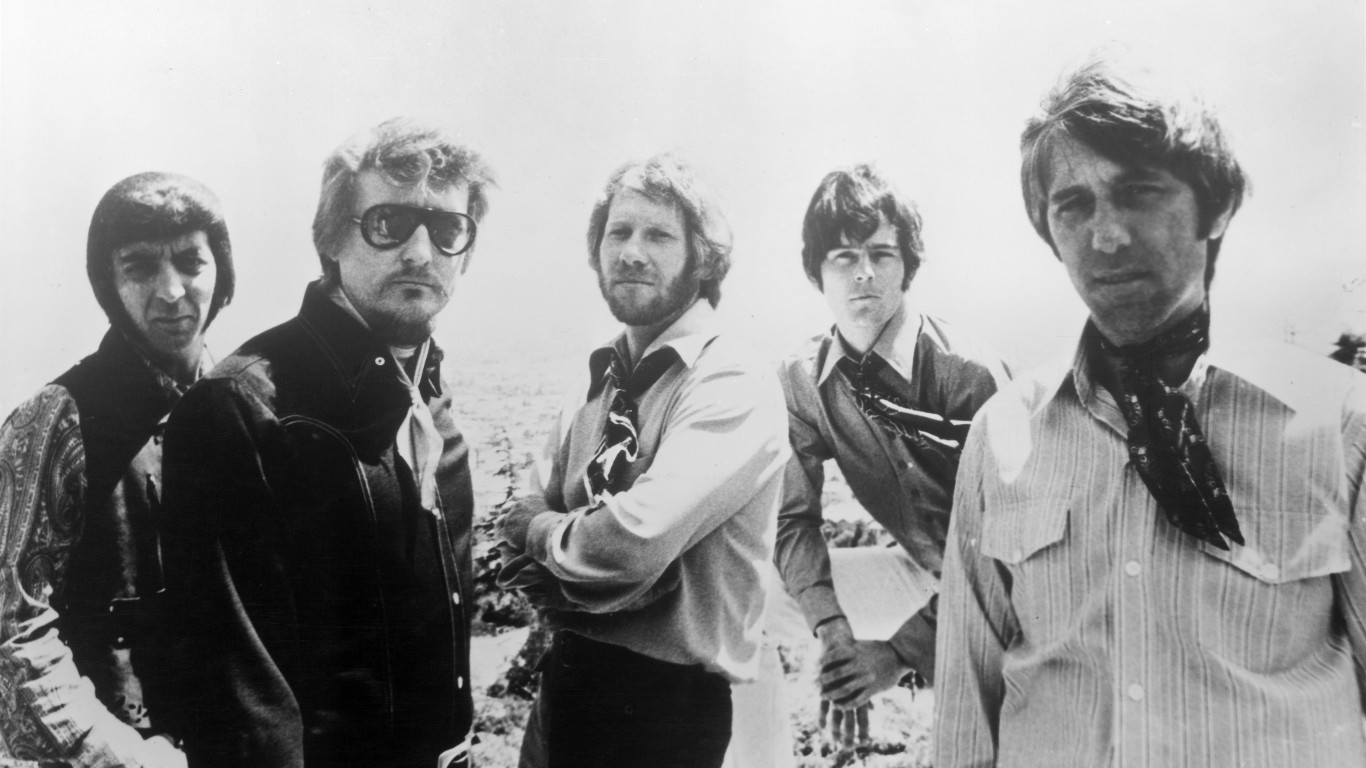
12. Walk, Don’t Run
> Artist: The Ventures
> Billboard Hot 100 entry date: July 18, 1960
> Total weeks on Billboard Hot 100: 30
> Listen here
The quintessential surf band from Tacoma, Washington (think the theme from the television show “Hawaii Five-O”) had its biggest hit, “Walk, Don’t Run,” reaching No. 2 in August of 1960. The Ventures recorded subsequent versions in disco and heavy-metal styles, and the 2000 track featured a saxophone. Influential guitar master Chet Atkins recorded a version of “Walk, Don’t Run.”
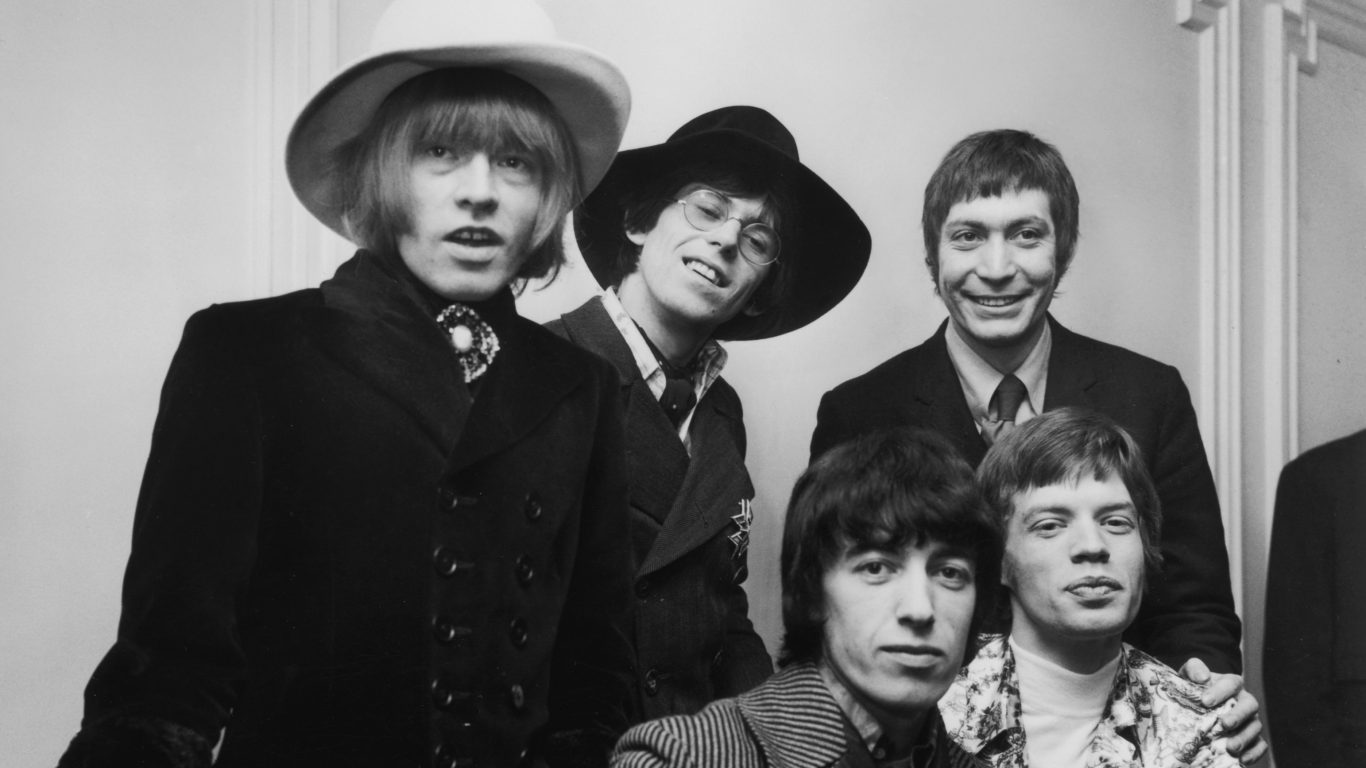
11. Paint It, Black
> Artist: The Rolling Stones
> Billboard Hot 100 entry date: May 14, 1966
> Total weeks on Billboard Hot 100: 11
> Listen here
The Rolling Stones had four chart-toppers in the United States within two years in the mid-1960s, and “Paint It, Black” was their third No. 1 on the Billboard Hot 100. The song, about depression and desolation, is famous for its use of sitar, a contribution by Brian Jones, who studied the instrument under the tutelage of Ravi Shankar disciple Harihar Rao.
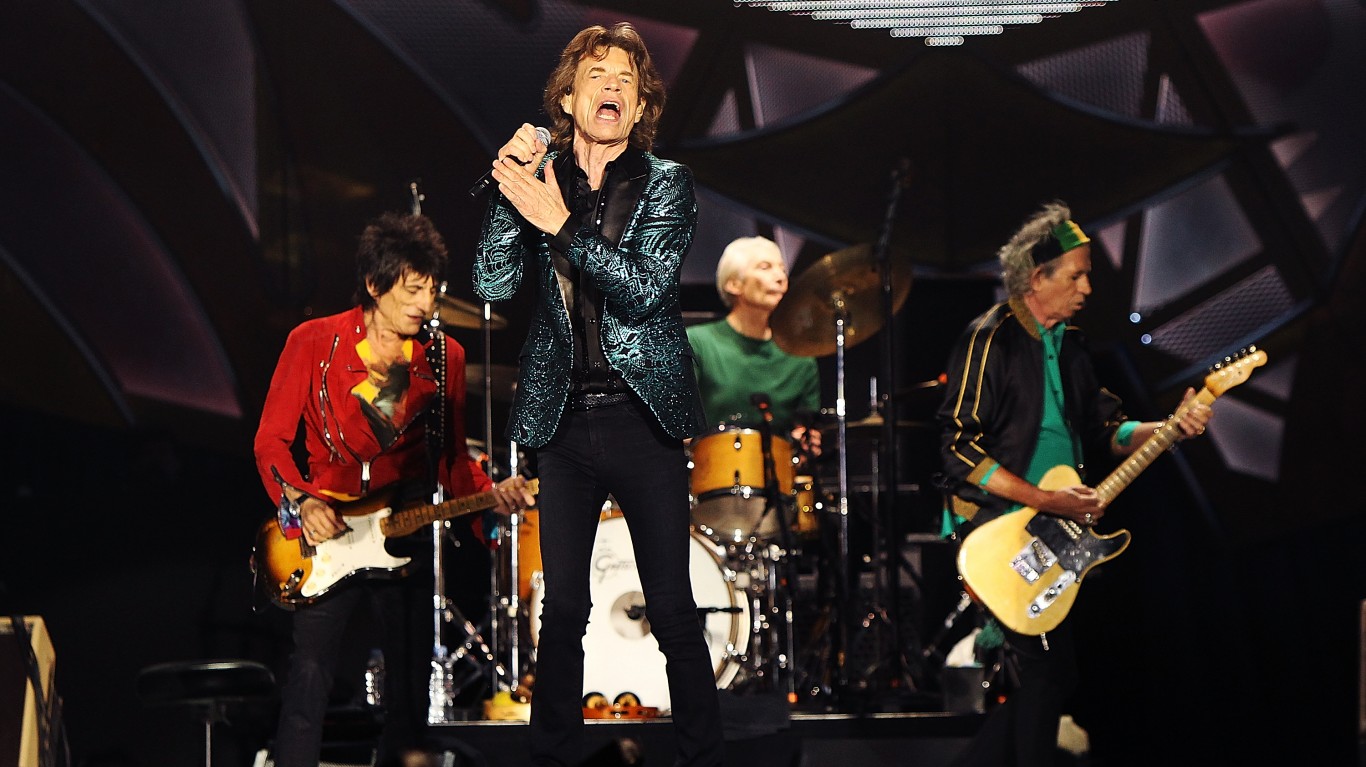
10. (I Can’t Get No) Satisfaction
> Artist: The Rolling Stones
> Billboard Hot 100 entry date: June 12, 1965
> Total weeks on Billboard Hot 100: 14
> Listen here
Perhaps the most recognizable opening of any rock song ever, and the song every garage band ever learned, this was the Rolling Stones’ first of eight U.S. chart-toppers in July of 1965. Keith Richards crafted the signature guitar riff after waking up in a hotel following a concert the Stones performed in Florida. He created the distorted guitar sound through Gibson Fuzz Box.
[in-text-ad]
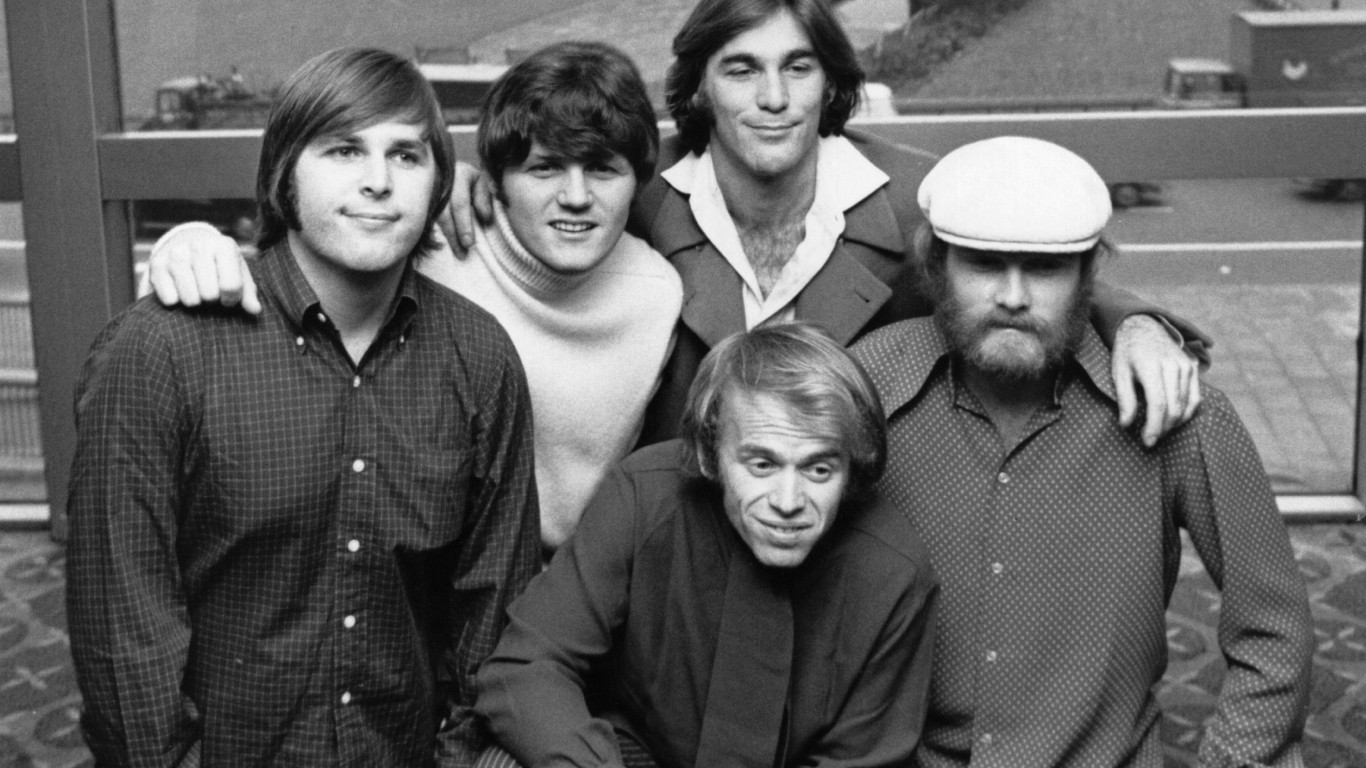
9. Good Vibrations
> Artist: The Beach Boys
> Billboard Hot 100 entry date: October 22, 1966
> Total weeks on Billboard Hot 100: 14
> Listen here
The Beach Boys’ groundbreaking psychedelic ode to the groovy era was a product of Brian Wilson’s quest to get every writing and instrumental nuance perfect. The song was a critical and commercial success, reaching No. 1 on the Billboard Hot 100 chart in December of 1966.
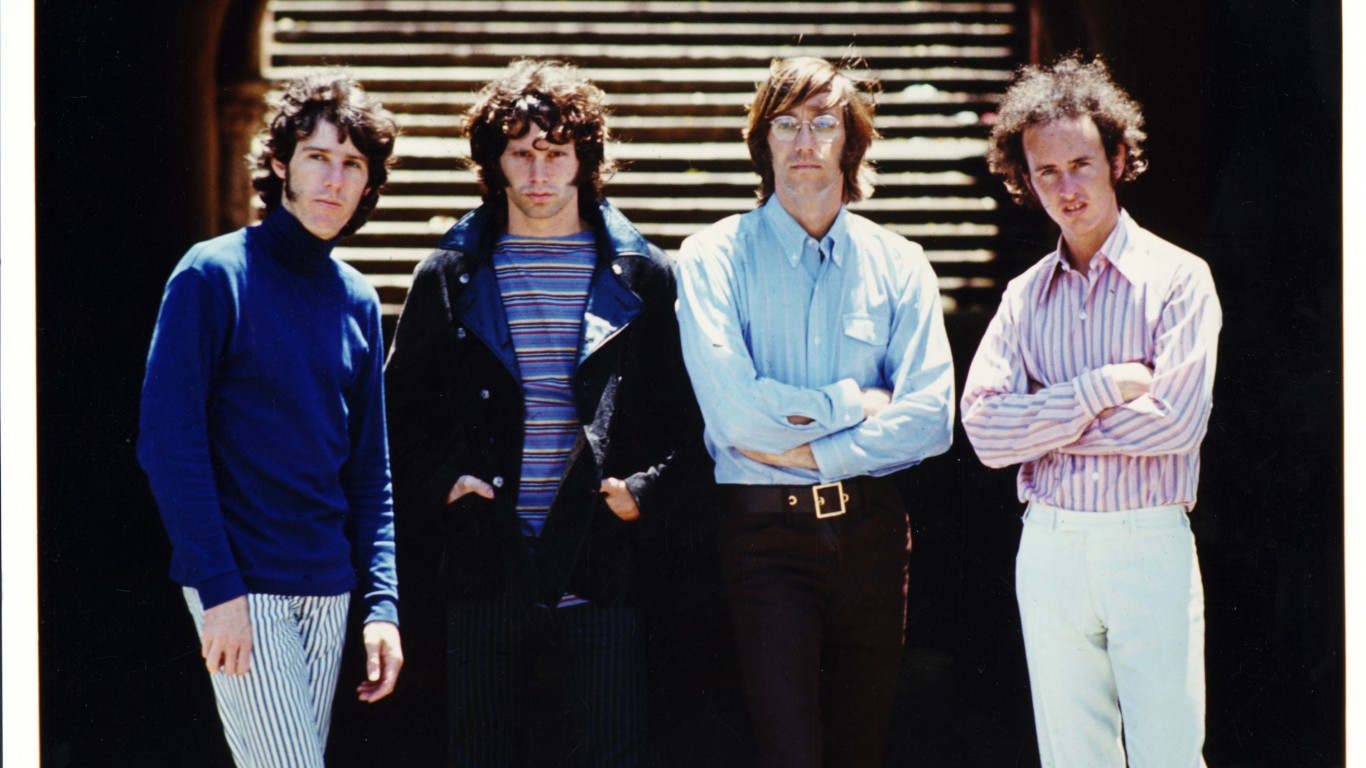
8. Light My Fire
> Artist: The Doors
> Billboard Hot 100 entry date: June 3, 1967
> Total weeks on Billboard Hot 100: 23
> Listen here
L.A.’s bad boys of rock scored their first No. 1 and their biggest hit in 1967, as “Light My Fire” topped the Billboard Hot 100 for three weeks. The band appeared on The Ed Sullivan Show that September and were asked to change the lyric “Girl, we couldn’t get much higher” because of the producers thought it was a reference to drugs. Lead singer Jim Morrison refused and sang the original lyrics, and the band was banned from the show. José Feliciano’s cover version won two Grammy awards.
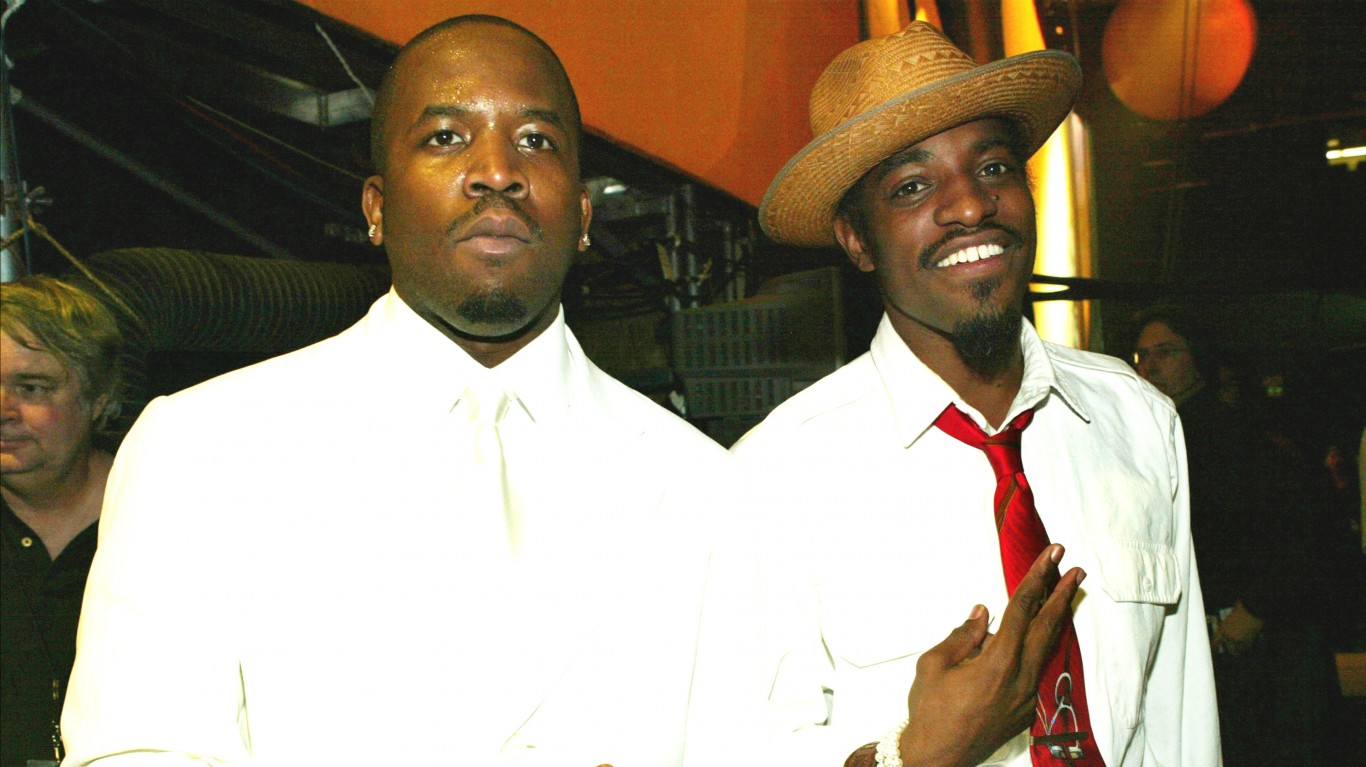
7. Hey Ya!
> Artist: Outkast
> Billboard Hot 100 entry date: October 18, 2003
> Total weeks on Billboard Hot 100: 32
> Listen here
The Atlanta-based hip-hop duo reached No. 1 on the Billboard Hot 100 for the second of their three chart-toppers. The duo released a Beatlemania-type video for the song, only instead of the setting of the Ed Sullivan Show in America, the hysteria is in England.
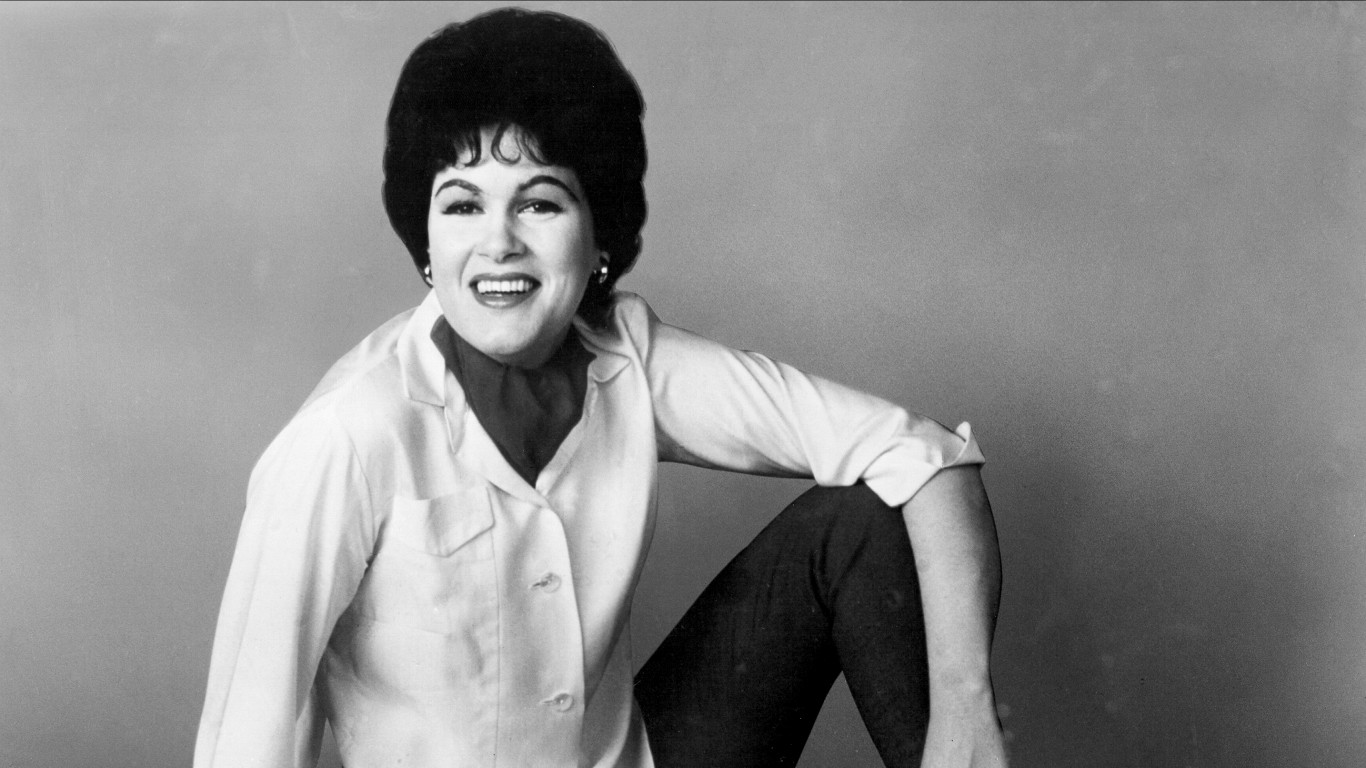
6. Crazy
> Artist: Patsy Cline
> Billboard Hot 100 entry date: October 23, 1961
> Total weeks on Billboard Hot 100: 11
> Listen here
Patsy Cline scored her best-performing hit on the Billboard Hot 100 with this Willie Nelson-penned ballad that peaked at No. 9. Cline reportedly recorded her vocals in just one take — a testament to the talents of the singer who died at just 30 years of age.
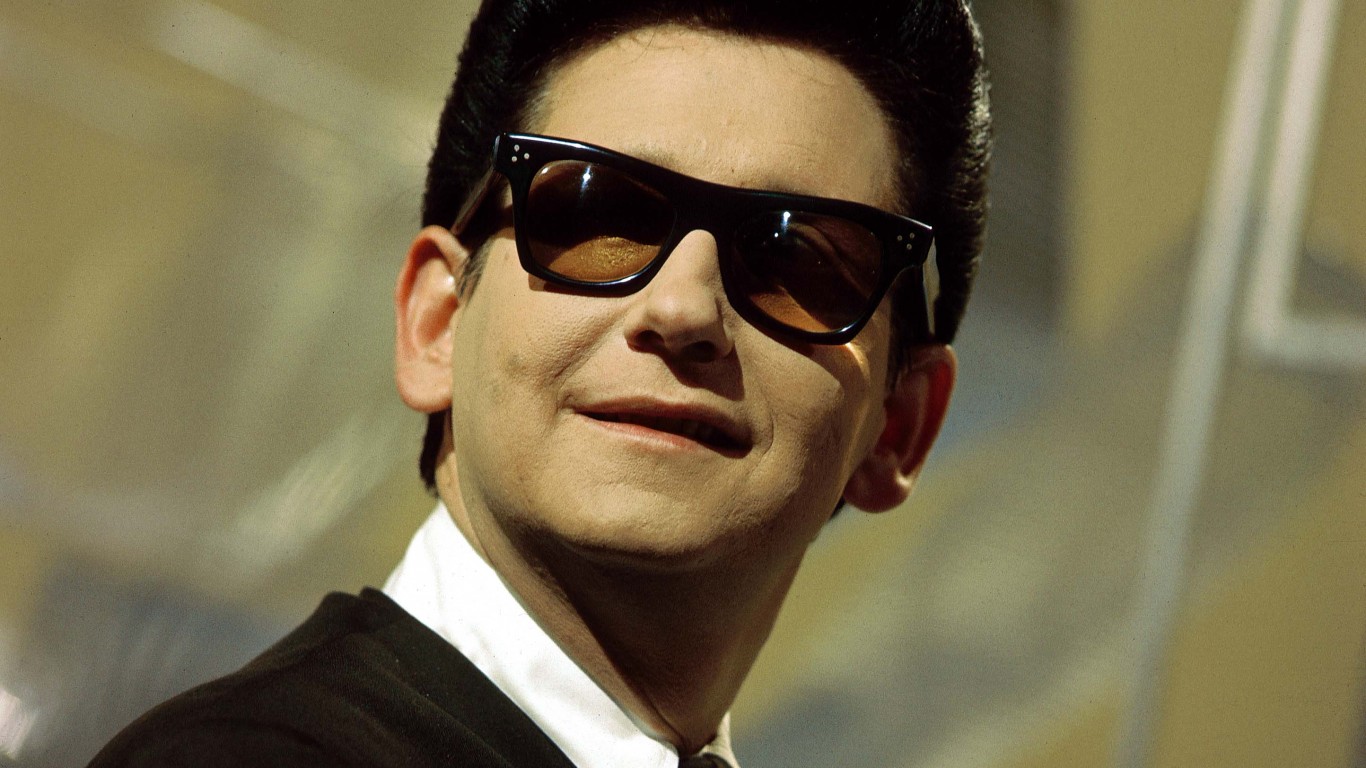
5. Only The Lonely (Know How I Feel)
> Artist: Roy Orbison
> Billboard Hot 100 entry date: June 6, 1960
> Total weeks on Billboard Hot 100: 30
> Listen here
The seminal Roy Orbison song written by Orbison and Joe Melson actually was offered to Elvis Presley and the Everly Brothers, the latter of whom suggested Orbison should release it himself. It reached No. 2 on the Billboard Hot 100 and topped the U.K. pop charts.
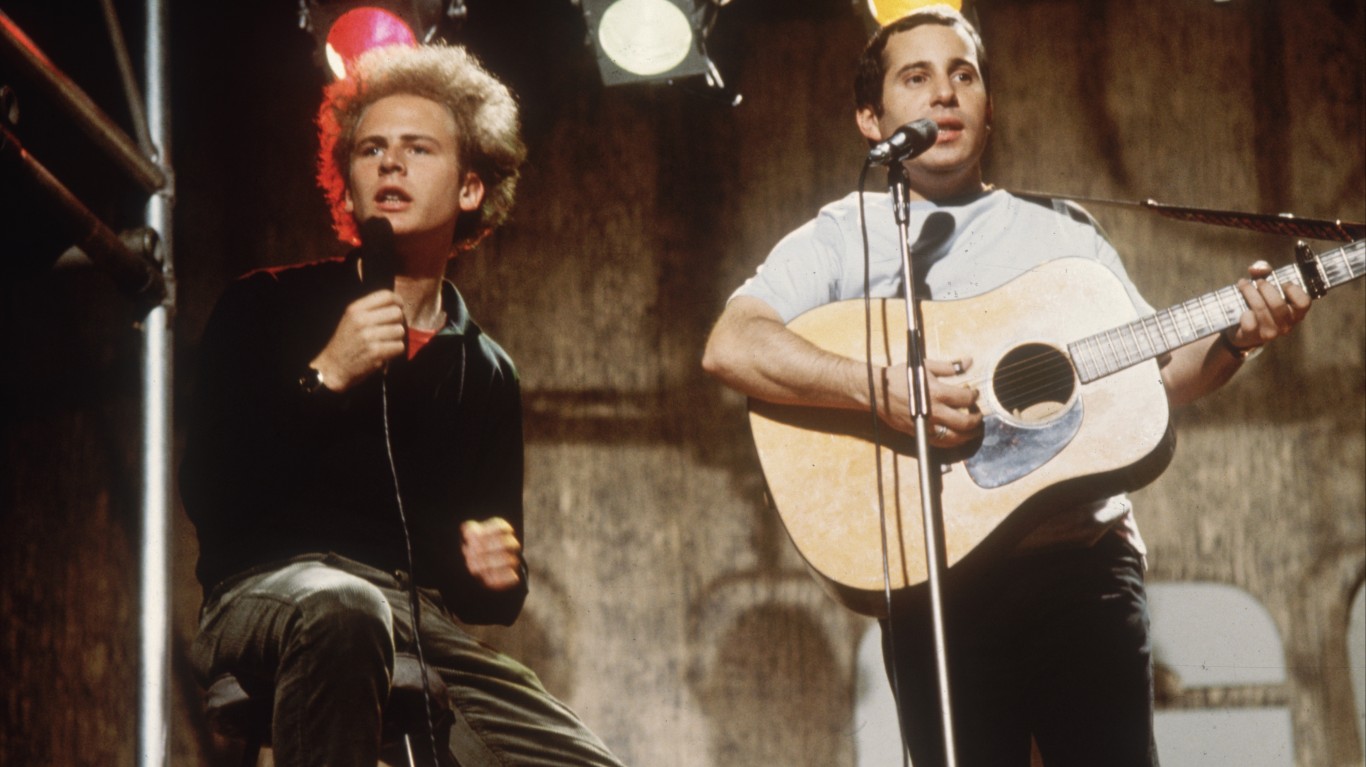
4. The Sound of Silence
> Artist: Simon & Garfunkel
> Billboard Hot 100 entry date: Nov. 20, 1965
> Total weeks on Billboard Hot 100: 14
> Listen here
“The Sound of Silence,” the title track from the Simon & Garfunkel album, was the duo’s first No. 1 hit, climbing to the top spot on the Billboard Hot 100 on Jan. 1, 1966. The song has been covered extensively, from metal band Disturbed’s haunting and highly successful version to Anna Kendrick’s rendition in the movie “Trolls.”
[in-text-ad-2]
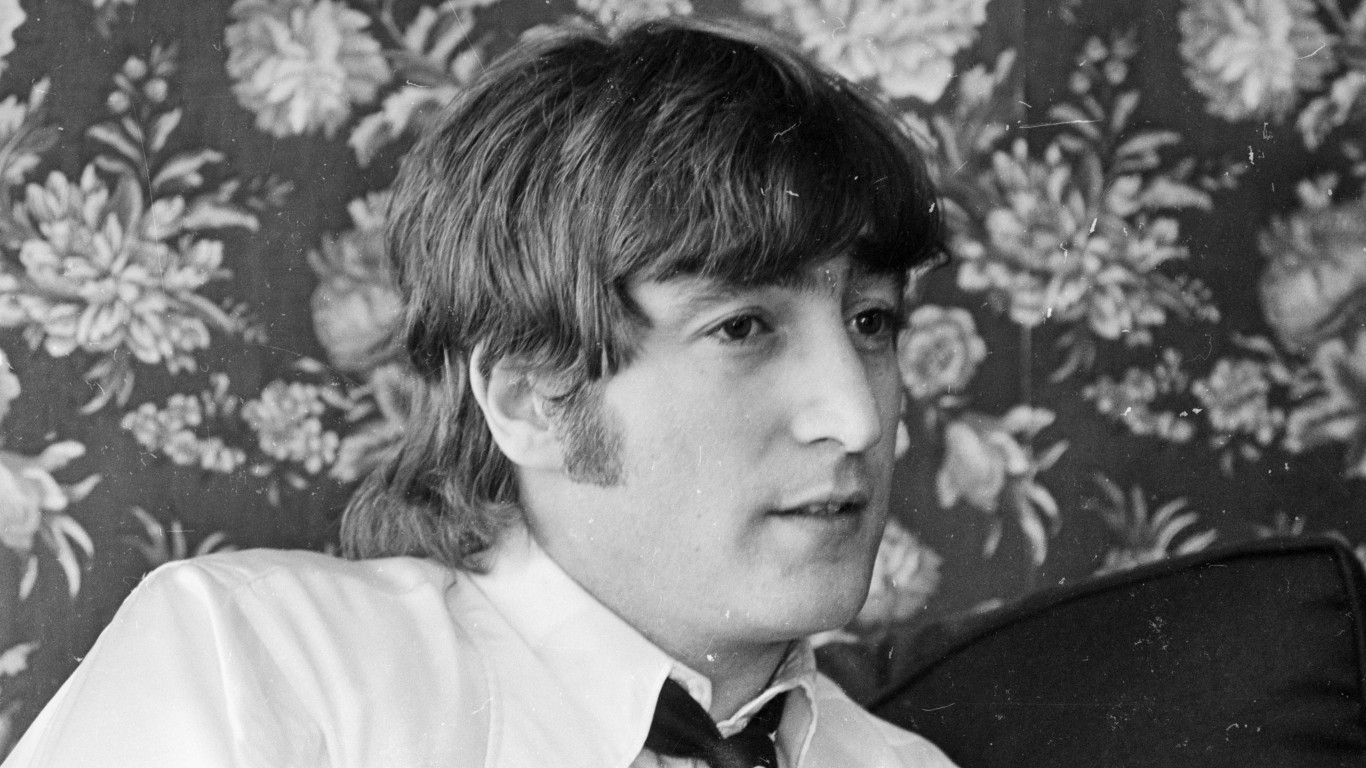
3. Imagine
> Artist: John Lennon
> Billboard Hot 100 entry date: October 23, 1971
> Total weeks on Billboard Hot 100: 9
> Listen here
“Imagine,” an idealistic appeal for peace and understanding, is the song most associated with John Lennon’s solo career after the Beatles. “Imagine” has been played before the ball drops at Times Square on New Year’s and during the closing of several Olympic Games.
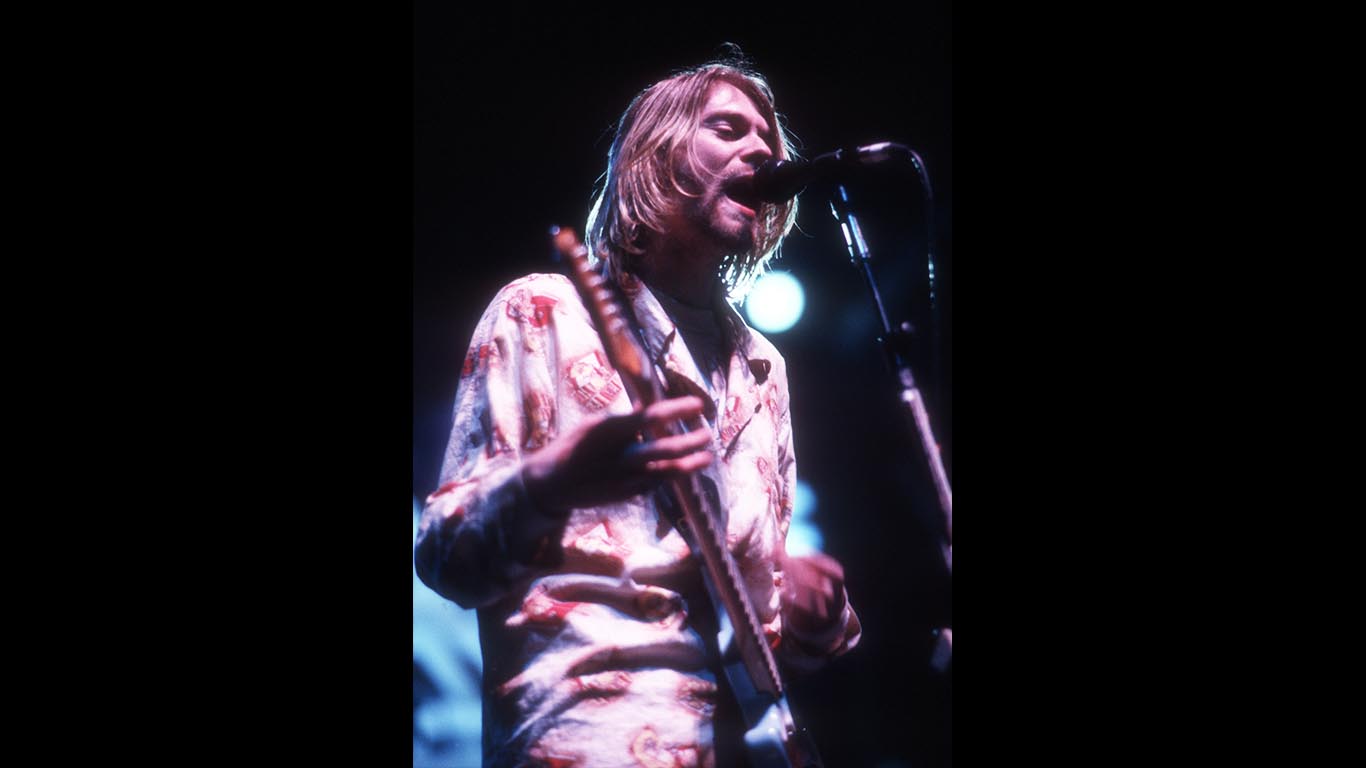
2. Smells Like Teen Spirit
> Artist: Nirvana
> Billboard Hot 100 entry date: Dec. 7, 1991
> Total weeks on Billboard Hot 100: 20
> Listen here
Considered an anti-anthem by some pop culture observers, “Smells Like Teen Spirit” made a rising Pacific Northwest band named Nirvana famous and embodied the grunge movement of the early 1990s. The song reached No. 6 on the Billboard Hot 100 in January of 1992. According to an analysis at the University of London, “Smells Like Teen Spirit” is the most iconic song of all time.

1. Hey Jude
> Artist: The Beatles
> Billboard Hot 100 entry date: Sept. 14, 1968
> Total weeks on Billboard Hot 100: 19
> Listen here
Paul McCartney wrote the song to comfort John Lennon’s young son Julian, who was trying to cope with his parents’s divorce. The song was the first single released on the Beatles own Apple label and went for an unheard of 7 minutes and 11 seconds. It featured a full orchestra and a memorable singalong chorus at the end. “Hey Jude” spent nine weeks atop the Billboard Hot 100, longer than any Beatles single.
The #1 Thing to Do Before You Claim Social Security (Sponsor)
Choosing the right (or wrong) time to claim Social Security can dramatically change your retirement. So, before making one of the biggest decisions of your financial life, it’s a smart idea to get an extra set of eyes on your complete financial situation.
A financial advisor can help you decide the right Social Security option for you and your family. Finding a qualified financial advisor doesn’t have to be hard. SmartAsset’s free tool matches you with up to three financial advisors who serve your area, and you can interview your advisor matches at no cost to decide which one is right for you.
Click here to match with up to 3 financial pros who would be excited to help you optimize your Social Security outcomes.
Have questions about retirement or personal finance? Email us at [email protected]!
By emailing your questions to 24/7 Wall St., you agree to have them published anonymously on a673b.bigscoots-temp.com.
By submitting your story, you understand and agree that we may use your story, or versions of it, in all media and platforms, including via third parties.
Thank you for reading! Have some feedback for us?
Contact the 24/7 Wall St. editorial team.
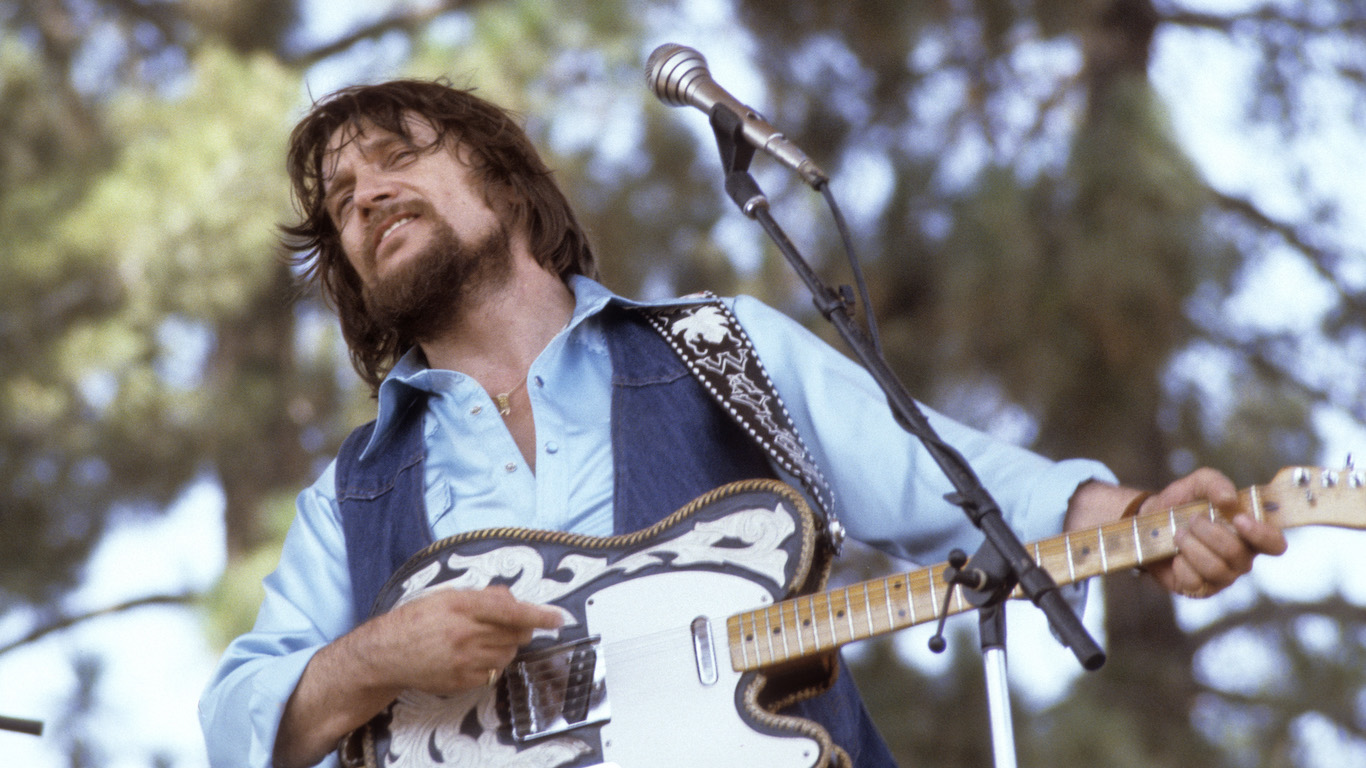 24/7 Wall St.
24/7 Wall St.